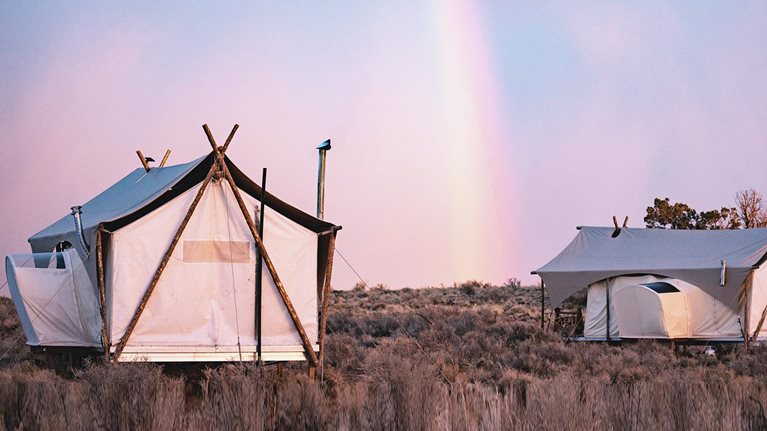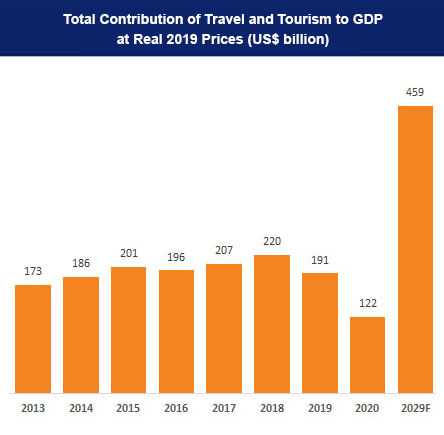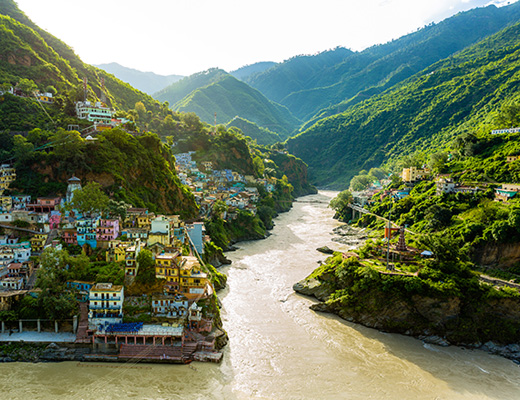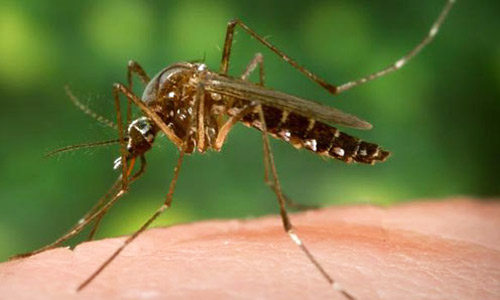- Hospitality Industry

Hospitality Industry statistics to have on your radar 2024

November 01, 2023 •
11 min reading
The hospitality industry is a vast sector with many different categories that include recreation, lodging, entertainment, food and beverage which are constantly evolving. Due to the overwhelming amount of data available today, it has become increasingly challenging for industry players to gather all the necessary hospitality statistics to keep up with the latest trends. As a result, staying informed and up-to-date has become an impossible task.
Despite being an exhilarating career path with many avenues which demand a diverse skill-set , the hospitality industry is currently struggling to fill open positions. This is partly due to the changing nature of jobs and employee expectations. Customer needs and expectations have also evolved in recent times, largely off the back of the global pandemic of 2020 and 2021 which spurred a seismic shift in industry trends .
In the absence of access to data which tells a story, industry players are finding it increasingly challenging to optimize their social and digital strategies. This is especially problematic for hoteliers and destination marketers who are already overwhelmed with their day-to-day responsibilities.
In this comprehensive article, we have gathered a wealth of hospitality statistics and data that will equip you with the insights you need. Our goal is to empower you to harness the power of analytics in the hospitality industry to drive innovation, exceed customer expectations, and achieve remarkable value.
Numbers to take your business to the next level
Trends in the hospitality industry have always been in a state of flux because client demands are always shifting.
Understanding hospitality industry statistics allows you to properly equip yourself to handle your changed client needs for your business to grow rapidly in this new environment. They will help you know what you need to do to succeed and come up with strategies to take your business to the next level.
Current state of the Hospitality Industry
By examining general statistics, you can gain insights into the present condition of the hospitality industry and gain a glimpse into its future.
- The travel industry is poised for a robust comeback
- in 2024, bringing a ray of hope for hoteliers who have been eagerly awaiting positive signs. Room demand is set to reach an all-time high in 2024. STR, via (CoStar).
- Hotel occupancy will increase 2.5% globally next year.
- Hotel average daily rate (ADR) is projected to grow by 4.9% in the next 12 months. ( Siteminder).
The industry anticipates a steady growth rate
Industries such as hospitality, which were affected by COVID-19 safety measures, are seeing some impressive growth rates now that the restrictions are being relaxed worldwide. The statistics below indicate just how impressive the current and future growth rates are.
- The hospitality industry experienced a remarkable growth from $4,390.59 billion in 2022 to $4,699.57 billion in 2023, achieving a compound annual growth rate (CAGR) of 7.0%. This significant expansion is a testament to the industry's resilience and ability to bounce back from the challenges posed over recent years. ( Hospitality Global Market Report 2023)
- The projected growth of the global hospitality market is set to soar to a staggering $5,816.66 billion by 2027, with a remarkable compound annual growth rate (CAGR) of 5.5%. ( Hospitality Global market report 2022 )
Growth trends in specific sub-sectors
Due to changes in consumer expectations, preferences and the rapid advancement of technology (among other factors), some areas in the hospitality industry are seeing a bigger growth rate than others. The statistics below shed light on these areas.
- The Online Food Delivery Market, which includes both Grocery Delivery and Meal Delivery services, experienced significant growth during the COVID-19 Pandemic. This market is projected to continue its upward trajectory with a compound annual growth rate (CAGR 2023-2028) of 11.47%. As a result, the market volume is expected to reach a staggering US$1.79tn by 2028. (Statista).
- The bleisure market continues to rise —business trips which are extended for leisure purposed. The bleisure tourism market was estimated to be valued at nearly US$ 594.51 billion in 2023, and is predicted to continue to grow to $731.4 billion by 2032, with a CAGR of 8.9% from 2023 to 2032. ( Future Market Insights).
- The global health and wellness market is estimated to reach almost seven trillion U.S. dollars by 2025. (Statista).
Key stakeholders' market share and consumer influence
Similar to the different growth rates in different areas in the same hospitality industry, not all players in the industry saw the same changes or are seeing the same growth rate. This is due to size, services, products and way of doing business. The statistics below highlight these differences.
- Airbnb's market value reached $92.11 billion in U.S. dollars in 2023, representing a significant increase from $54.13 billion the previous year. However, it has experienced a decline from its peak valuation in 2021, surpassing a staggering $100 billion. (Statista).
- Airbnb holds a commanding market share of over 20% in the vacation rental industry but it seems to be declining due to rising rental pricing and overwhelming choice of properties. ( HelpLama).
- Booking.com is the most valuable travel and tourism brand in the world, with a market capitlization of $9B. ( Companies Market Cap).
- As of 2023 Hilton is the most valuable hotel brand in the world, with a brand value of $11.7B in 2023, although the Wyndam group has the most properties. ( Brand Directory) .
- It is estimated that a further 2,707 hotels will open their doors globally in 2024. ( Statista )
Jobs & employment in Hospitality & Leisure
It goes without saying that as travel died down during the pandemic, so did jobs in the hospitality industry. Whilst travel restrictions are firmly a thing of the past, the hospitality jobs market has been slow to bounce back and is still recovering now. Many of those laid off workers in 2020 found more reliable jobs with better perks and more sociable hours elsewhere. When should we expect a full recovery? The statistics answer these questions best.
- The Travel and Tourism sector is expected to employ approximately 320 million individuals in 2023, showcasing a steady growth trend after experiencing a decline in numbers in 2020. This decline saw employment figures drop from 334 million in 2019 to 271 million. However, the industry is now on the path to recovery, with employment opportunities steadily increasing once again. ( Unilever ).
- Discover the types of jobs available in this exciting growth sector.
- Hotels will struggle with staffing shortages until 2025 when the industry is expected to make a true adjusted recovery. ( STR and Tourism Economics )
- Only 28% of hospitality workers are on full-time hours. ( Labour Market Insights) .

Travel & Tourism
If 2022 was the year travel returned following the pandemic, 2023 was all about making up for lost time and ticking off bucket list items. In short, there's a healthy outlook to the travel and tourism sector in 2024 and beyond. To better understand the current changes and future of travel and tourism, we have compiled the statistics below.
General Travel & Tourism industry statistics
The general travel and tourism statistics below show the current and future state of the travel and tourism sector as a whole.
- The projected market volume is set to reach an impressive US$1,063.00 billion by 2028, with revenue expected to display a steady annual growth rate (CAGR 2023-2028) of 4.42%. ( Statista ).
- By 2028, online sales are projected to account for a staggering 76% of total revenue in the Travel & Tourism market. (Statista).
Growth trends in specific areas
The growth of the travel and tourism sector has been influenced by several factors including ease of access to information, an increase in the amount of paid leave, and rapid urbanization among others. Despite the pandemic slump, the industry is now doing well and is projected to do even better over the next few years, as indicated by the following statistics.
- Global tourism expenditure is projected to reach USD2 trillion, surpassing previous records driven by the strong demand for leisure travel. ( Euromonitor International ).
- As employees strive for a better work/life balance, the resurgence of business travel becomes a more intricate affair. In line with this shift, bleisure travel is poised to make a significant impact, with predictions indicating that it will soar to an impressive USD300 billion by 2024. This trend highlights the growing desire among professionals to combine work and leisure, creating a unique and enriching travel experience. ( Euromonitor International ).
- These 5 countries will be the fastest growing tourism destinations in 2024: Tunisia, Mexico, Morocco, Dominican Republic, and Sri Lanka. (Travel Off Path) .
Domestic vs. international travel
The statistics below help to better understand the "new traveler" whos is most likely planning 2 domestic trips and 2 international trips in 2024.
- International travel has rebounded post pandemic however going forward into 2024 it's clear that whilst consumer sentiment is very much in favor of international travel, domestic travel is much more budget friendly. ( Travel + Leisure ).
- Global business travel will fully recover by 2024. It is forecast to increase by 14% in 2022, with the US and China seeing the largest growth (30% each). ( Leslie Josephs )
Air, cruise & ground transport
The widespread adoption of the internet as a source of information, the ease of mobility and increased awareness of new destinations have brought significant changes to how consumers travel. The statistics below show how much travel has changed and what to expect.
- Global flight numbers were still below pre-pandemic levels at the end of 2023. According to the International Air Transport Association, global airlines anticipate that approximately 4.35 billion individuals took flights in 2023, a slight decrease from the 4.54 billion flyers in 2019.
- In the global airline industry, it was anticipated that 2023 brought in net profits of $9.8 billion, although these profits will come with a razor-thin net profit margin of 1.2%. ( Mint )
- Rail transport is set to experience exponential growth in 2024, emerging as the fastest-growing travel category worldwide with an impressive growth rate of 35.6% over the course of 2023-2024. ( Euromonitor International ).
- According to some travel experts, fly-to-the-meeting and fly-back-from-the-meeting day trips will stop being popular as more people prefer multi-day bleisure trips. ( SAP Concur Study of Global Business Traveler )
Jobs & employment in Travel & Tourism
As it was with all other sectors and industries, the travel and tourism sector experienced a labor shortage in 2023, but will it continue?
- Jobs in travel and tourism were still below pre-pandemic levels at the end of 2023 at a projected 320 million jobs. But with the growing demand for travel, jobs in this sector are set to rise to 430 million by 2033. ( Statista ).
- Candidates for these open positions have different expectations and priorities compared to those before the pandemic. They expect flexible working arrangements, skills training, and diversity and inclusion. Hotels will have to adapt to fill open positions. ( AHLA )
- New positions are opening up that are centred around digitalization, technology and sustainability .
Demographic statistics: Who's travelling in 2024?
Different segments play different roles in the travel and tourism industry. To fine-tune your digital strategy, you have to know your target market well and understand what they expect when they travel. Here are a few stats that show some key domgraphics that may be relevant to your business.
- In the modern era, travel has become increasingly digitalized, with 67% of consumers projected to make their travel bookings online in the year 2024.
- An interesting trend among post-pandemic travelers is the shift towards a younger demographic, with millennials (aged 30-44) comprising the largest portion of Wellness Worshippers, Leisure Seekers, Luxury Seekers, and Digital Travelers, as revealed by Euromonitor's Voice of the Consumer: Travel Survey. This highlights the changing preferences and behaviors of travelers in the modern era.
- Luxury Seekers are most commonly found in countries across the Middle East and Asia Pacific, while Eco-Adventurers tend to be prevalent in both Asia Pacific and Europe. On the other hand, Cultural Explorers are predominantly found in various countries throughout Europe.
- There is expected to be a 15% growth in sales of sports tourism packages sold through travel intermediaries from 2023 to 2024. ( Euromonitor International ).
Hospitality & Travel is evolving at speed
In 2024, the hospitality and travel sectors will be evolving at a rate of knots. Vacant positions and shifting consumer preferences define the landscape. Seamless online booking is now a necessity, just the beginning of a guest-centric approach. Elevating the experience means personalized on-site services, setting leaders apart.
Yet, beyond technology lies a deeper need—embracing diversity and inclusion as fundamental values. To cater to the evolving traveler, a blend of high-tech solutions and high-touch experiences aligning with their beliefs is vital. Statistics serve as signposts in this transformative journey. Adaptability is the key to survival, while a comprehensive guest journey and commitment to diversity steer success.
Amidst change, strategies demand recalibration. Embrace adaptability, shape a holistic guest experience, and embed diversity and inclusion into your brand. These principles navigate the industry toward leadership in the evolving hospitality and travel landscape of 2024.

Keep reading

The future of luxury experiences: Where luxury meets hospitality
Apr 09, 2024

The potential of green financing for hotel real estate in Asia
Apr 04, 2024

The future of hotel distribution channels: Seizing opportunity in channel disruption
Apr 03, 2024
This is a title
This is a text
More articles on trends and strategy
- Bachelor Degree in Hospitality
- Pre-University Courses
- Master’s Degrees & MBA Programs
- Executive Education
- Online Courses
- Swiss Professional Diplomas
- Culinary Certificates & Courses
- Fees & Scholarships
- Bachelor in Hospitality Admissions
- EHL Campus Lausanne
- EHL Campus (Singapore)
- EHL Campus Passugg
- Host an Event at EHL
- Contact our program advisors
- Join our Open Days
- Meet EHL Representatives Worldwide
- Chat with our students
- Why Study Hospitality?
- Careers in Hospitality
- Awards & Rankings
- EHL Network of Excellence
- Career Development Resources
- EHL Hospitality Business School
- Route de Berne 301 1000 Lausanne 25 Switzerland
- Accreditations & Memberships
- Privacy Policy
- Legal Terms
© 2024 EHL Holding SA, Switzerland. All rights reserved.
See how Cvent can solve your biggest event challenges. Watch a 30-minute demo.

What Is the Hospitality Industry? Your Complete Guide

What does hospitality mean? What is the hospitality industry, exactly? Where and how did it begin? This post answers all those questions and more as we explore the past, present, and future of hospitality. As we dive deeper into what the industry entails, you’ll discover how hospitality impacts employers, employees, economies, consumers, the environment, and so much more. Whether you’re curious about which businesses are part of the industry, what they do, or how to start a career in hospitality, you’ve come to the right place.
What is the hospitality industry?
The hospitality industry is a massive business sector. Casting a broad umbrella, it encompasses all economic and business activities that rely upon or contribute to travel and tourism. Hospitality-focused businesses like hotels and travel agencies contribute directly by providing essential services that enable travel and tourism. Suppliers, transportation services, and catering companies may indirectly contribute by delivering the goods and services necessary to keep the industry running; however, they do not solely rely on hospitality for their revenue.
Because the hospitality industry is so expansive, it includes a diverse spectrum of companies, businesses, and experts. Even with so much variety, most hospitality businesses fall into one of four categories.
1. Travel & tourism (T&T)
Although many people think travel and tourism are synonymous with hospitality, that’s not quite the case. More accurately, T&T is a specific category within the hospitality industry. It includes airlines, shuttle services, travel agents, destination marketing organizations (DMOs) , and other businesses or services that help facilitate the physical travel necessary for tourism. Those working in T&T help drive tourists, workers, and businesses to new destinations.
2. Accommodation
One of the largest and most diverse parts of the hospitality industry is the accommodation sector, which includes everything from lodging to event grounds and special event venues. Numerous different types of hotels and venues fall into this sector, including:
- Chain hotels
- Extended stay properties
- Boutique hotels
- Conference and convention centers
- Wedding venues
- Casinos/casino suites
3. Food & beverage (F&B)
Most hotels and resorts offer their guests some form of food or dining option. Whether operating a café, buffet breakfast, or full-service restaurant, food and beverage services are integrated directly into many hospitality-based businesses. Stand-alone F&B providers, like restaurants or food trucks, operate independently, but they also have a part to play in the local hospitality scene.
Event catering, quick-service establishments, full-service restaurants, and limited-service F&B are powerful revenue drivers contributing to the hospitality industry. In addition to serving in-house hotel guests, F&B is a critical component of meetings and events, from private parties, like birthdays or weddings, to large-scale corporate events .
4. Recreation & entertainment
Because businesses in the hospitality industry often rely on consumers’ disposable income, they market to customers’ desire for entertainment that refreshes the mind, body, and spirit. In addition to lodging, travel services, and culinary delights, hospitality is full of indoor and outdoor recreation.
Bars, nightclubs, theaters, stadiums, museums, zoos, and other attractions often act as special event venues and tourist attractions, helping to drive a destination’s economy . Spectacular outdoor spaces, including our national and state parks , attract travelers from near and far to feed their local markets.
Whether providing a memorable meal or a relaxing day at the spa, the true purpose of hospitality is to ensure that the customer has an enjoyable experience —whatever they do.
But how did it all get started? How far back do the roots of the hospitality industry actually go?

When did the hospitality industry begin?
Although hospitality doesn’t have a designated start date, its traditions date back thousands of years. Ancient symbols of hospitality exist worldwide, with the oldest signs discovered in French caves dating back to 15,000 BCE . Historians and archeologists believe early humans designed the caves to welcome guests and greet visiting tribes.
Xenia, a phrase translating to “the sacred rule of hospitality,” is another early sign of the tradition. In ancient Greece, the custom expressed the law or expectation that hosts would offer protection and kindness to strangers . The Greeks understood that a satisfactory hospitality experience relied on hosts respecting their guests and vice versa. Furthermore, they believed displaying proper hospitality was “fundamental to human civilized life.” Modern hospitality may not look like it did thousands of years ago, but its purpose remains the same.
Is the hospitality industry growing?
Pre-pandemic, the hotel and motel industries (i.e., hospitality) employed approximately 173 million workers . In our primarily post-pandemic world, the hospitality industry and its partners remain massive global employers. 2022 brought 22 million new jobs to the sector, representing an almost 8% increase since 2021. In 2023, the hospitality positions accounted for one of every ten available jobs .
Although many hospitality-focused businesses (e.g., hotels and restaurants) still face staffing shortages , the industry remains one of the largest global employment sectors. From 2022-2023, the international hospitality industry’s value grew at a compound annual growth rate of 7% . The rebound illustrates consumers’ desire to travel again and return to in-person events after restrictions were lifted. Paralleling this demand increase, the World Travel and Tourism Council estimates that the hospitality industry will create 126 million more jobs by 2032 .
How does the hospitality industry impact the environment?
In 2022, the hospitality industry was responsible for approximately 1% of global carbon emissions . Single-use plastics, high water consumption, energy usage, and excess waste are just a few ways hotels negatively affect their local environment and the overall climate.
To demonstrate a commitment to sustainability , social responsibility, and shifting consumer preferences, the industry is becoming greener through robust global initiatives and innovative day-to-day practices, like these eco-friendly hotel ideas . As consumer attitudes towards environmental conservation and sustainability strengthen, being eco-friendly is no longer optional for most businesses; it’s necessary.
Why work in hospitality?
If you enjoy making other people happy, hospitality might be right for you. It’s an industry where employees work together to create a welcoming atmosphere, satisfy customers, impress hotel guests , and create an exceptional visitor experience. With hotel, events, dining, planning, travel, custom service, and a wide variety of other roles available, there’s an opportunity for every worker and every personality type.
Hospitality is also a dynamic, fast-paced, and ever-changing field. Just as every guest is different, so is every day working in the industry. Whether working in a hotel or nightclub, you get to encounter diverse types of people with varying backgrounds from all over the world. As you connect with various guests and strive to meet their needs, you’ll get exposed to new cultures and expand your life experience.
Additionally, hospitality offers more flexible scheduling than many other industries, as hospitality businesses often operate outside of traditional 9 a.m. to 5 p.m. office hours. Many young people flock to hotels, restaurants, and similar businesses because of the work-life balance they provide. Working in the industry also comes with a diverse range of perks, such as discounted travel, competitive pay rates, and numerous opportunities to advance your career.
Become an expert on all things hospitality
How do you get a job in the hospitality industry?
There are many different paths you can take to begin a hospitality career. While some employees start at an entry-level position and work up the ranks, others translate their past professional experience into a hospitality-focused career. Increase your chances of building a successful career in the hospitality industry by:
1. Identifying which hospitality sector best suits you
The hospitality industry includes diverse careers and professions, making it an excellent sector for workers with various skills and personality types. Whether you’re an introvert who prefers to work alone or a bubbly, conversational individual, hospitality has something for everyone. If you want to work in a hotel, consider which department or position best fits you.
- Front desk: Front-facing, customer-focused positions, great for outgoing personality types
- Housekeeping: Back-of-the-house positions, perfect for task-oriented or meticulous employees
- F&B: Front-facing and back-of-house positions available, often working in a busy, high-stress environment
- Maintenance: Skill-based and goal-focused positions that require big-picture thinkers with excellent task-management skills
- Meetings and events: A range of primarily forward-facing positions available for event planners, organizers, coordinators, and more
2. Knowing where to look
As customer service lies at the heart of hospitality, it’s common for professionals to turn to members of their local network for references, recommendations, and referrals. Many entry-level hospitality jobs are shared through local and employee referrals, the hiring manager’s professional network, or an individual’s social media accounts.
If you already know where you want to work, get to know the people there. Introduce yourself to the management team at hotels, restaurants, and other venues that interest you. If you’re not sure where to start, there are a variety of hospitality employment resources available, including:
- Online advertisements. Online job ads are especially beneficial if you’re new to the industry or a particular destination. If you lack first-person word-of-mouth recommendations, breaking into your local industry may feel intimidating. Keep an eye out for online ads on job boards, local news sites, and search engine results to streamline your search.
- Social media pages. Follow venue Facebook pages, join local hospitality groups, and keep a close eye on the Instagram pages of the hotels or destinations where you want to work. Regularly check social media, scanning for links to external job sites or brand listings.
- Hospitality Online
- iHireHospitality
- Hospitality Crossing
- Hospitality Confidential
- Wyndham Careers
- Hyatt Careers
- Marriott International Careers
- Jobs at Hilton
- IHG Careers
- Accor Careers
- OYO Careers
- Staffing agencies. Staffing and temporary work agencies are fantastic resources for helping individuals get their foot through the door. Although there are various hospitality-specific staffing agencies, like Hospitality Staffing Solutions , it’s also common for local staffing agencies to work directly with nearby hotels as they help fill entry-level positions in guest service, housekeeping, maintenance, and other departments.
3. Expanding your hospitality knowledge
Become a go-to person for all things hospitality, from industry trends to the latest marketing techniques. Stay current on the latest to remain relevant in an increasingly competitive field.
4. Keeping up with industry certifications
Having credentials can significantly impact how quickly you land your dream travel job. Show other hospitality professionals that you’re serious about a career in the industry by holding various certifications, like HubSpot Academy’s Inbound Marketing Certification , a certificate in hospitality revenue management (CRHM), or ServSafe certifications for those involved on the F&B side.
5. Determining your career path
After exploring the wide and wonderful world of hospitality, pick a career path you’re enthusiastic about. Instead of thinking about where to start, consider where you’d like to go in the industry. Visualizing where you want to end up can help determine which steps you should take to advance your career down a path that speaks to you.
Now you know what the hospitality industry is and why it matters!
With a better understanding of how far hospitality extends and its immense influence worldwide, it’s easy to see why the industry is growing. To learn more, join us as we examine the most significant trends impacting the hospitality industry in 2023 .

Kim Campbell
Kim is a full-time copy and content writer with many years of experience in the hospitality industry. She entered the hotel world in 2013 as a housekeeping team member and worked her way through various departments before being appointed to Director of Sales. Kim has championed numerous successful sales efforts, revenue strategies, and marketing campaigns — all of which landed her a spot on Hotel Management Magazine’s “Thirty Under 30” list.
Don’t be fooled though; she’s not all business! An avid forest forager, post-apocalyptic fiction fan, and free-sample-fiend, Kim prides herself on being well-rounded.

More Reading
24 ai marketing tools to elevate your business, developing a hotel room block strategy, hotel information security: a guide to threats and prevention.
Subscribe to our newsletter
When you walk into your hotel, the staff will greet you by name, know your travel preferences, and anticipate your needs. Almost every aspect of your stay will be personalized to your tastes, and you can reconfigure your room at any time to make it suitable for work, exercise, socializing, or sleep. For all leading hotel brands, the well-being of both guests and employees—and the health of the planet—will be top priorities. Welcome to the hospitality industry’s next normal.
The view to 2030 and beyond
Hospitality that benefits people and the planet, more on the future of travel and hospitality.

Three innovations to solve hotel staffing shortages

Travel startups: Disruption from within?

The path toward eco-friendly travel in China

Accelerating the transition to net-zero travel

How to ‘ACE’ hospitality recruitment

Rebooting customer experience to bring back the magic of travel
The next normal explores the future of grocery, college, video entertainment, and more., latest editions of the next normal, the future of biotech: ai-driven drug discovery, could this be a glimpse into life in the 2030s, the future of video entertainment: immersive, gamified, and diverse.
The magazine of Glion Institute of Higher Education
- What is tourism and hospitality?

Tourism and hospitality are thriving industries encompassing many sectors, including hotels, restaurants, travel, events, and entertainment.
It’s an exciting and dynamic area, constantly evolving and adapting to changing customer demands and trends.
The tourism and hospitality industry offers a diverse range of career opportunities that cater to various interests, skills, and qualifications, with positions available from entry-level to executive management.
The booming tourism and hospitality industry also offers job security and career growth potential in many hospitality-related occupations.
What is tourism?
Tourism is traveling for leisure, pleasure, or business purposes and visiting various destinations, such as cities, countries, natural attractions, historical sites, and cultural events, to experience new cultures, activities, and environments.
Tourism can take many forms, including domestic, or traveling within your country, and international tourism, or visiting foreign countries.
It can also involve sightseeing, adventure tourism , eco-tourism, cultural tourism, and business tourism, and it’s a huge contributor to the global economy, generating jobs and income in many countries.
It involves many businesses, including airlines, hotels, restaurants, travel agencies, tour operators, and transportation companies.
What is hospitality?
Hospitality includes a range of businesses, such as hotels, restaurants, bars, resorts, cruise ships, theme parks, and other service-oriented businesses that provide accommodations, food, and beverages.
Hospitality is all about creating a welcoming and comfortable environment for guests and meeting their needs.
Quality hospitality means providing excellent customer service, anticipating guests’ needs, and ensuring comfort and satisfaction. The hospitality industry is essential to tourism as both industries often work closely together.
What is the difference between tourism and hospitality?
Hospitality and tourism are both related and separate industries. For instance, airline travel is considered as part of both the tourism and hospitality industries.
Hospitality is a component of the tourism industry, as it provides services and amenities to tourists. However, tourism is a broader industry encompassing various sectors, including transportation, accommodation, and attractions.
Transform your outlook for a successful career as a leader in hospitality management
This inspiring Bachelor’s in hospitality management gives you the knowledge, skills, and practical experience to take charge and run a business

Is tourism and hospitality a good career choice?
So, why work in hospitality and tourism? The tourism and hospitality industry is one of the fastest-growing industries in the world, providing a colossal number of job opportunities.
Between 2021 and 2031, employment in the hospitality and tourism industry is projected to expand faster than any other job sector, creating about 1.3 million new positions .
A tourism and hospitality career can be a highly rewarding choice for anyone who enjoys working with people, has a strong service-oriented mindset, and is looking for a dynamic and exciting career with growth potential.
Growth and job opportunities in tourism and hospitality
Tourism and hospitality offers significant growth and job opportunities worldwide. The industry’s increasing demand for personnel contributes to economic and employment growth, particularly in developing countries.
The industry employs millions globally, from entry-level to high-level management positions, including hotel managers, chefs, tour operators, travel agents, and executives.
It provides diverse opportunities with great career progression and skill development potential.
Career paths in tourism and hospitality

There are many career opportunities in tourism management and hospitality. With a degree in hospitality management, as well as relevant experience, you can pursue satisfying and fulfilling hospitality and tourism careers in these fields.
Hotel manager
Hotel managers oversee hotel operations. They manage staff, supervise customer service, and ensure the facility runs smoothly.
Tour manager
Tour managers organize and lead group tours. They work for tour companies, travel agencies, or independently. Tour managers coordinate a group’s transportation, accommodations, and activities, ensuring the trip runs to schedule.
Restaurant manager
Restaurant managers supervise the daily operations of a restaurant. They manage staff, ensure the kitchen runs smoothly, and monitor customer service.
Resort manager
Resort managers supervise and manage the operations of a resort. From managing staff to overseeing customer service, they ensure the entire operation delivers excellence.
Entertainment manager
Entertainment managers organize and oversee entertainment at venues like hotels or resorts. They book performers, oversee sound and lighting, and ensure guests have a great experience.
Event planner
Event planners organize and coordinate events, such as weddings, conferences, and trade shows. They work for event planning companies, hotels, or independently.
vent planners coordinate all aspects of the event, from the venue to catering and decor.
Travel consultant
Travel consultants help customers plan and book travel arrangements, such as flights, hotels, and rental cars. They work for travel agencies or independently. Travel consultants must know travel destinations and provide superb customer service.
What skills and qualifications are needed for a career in tourism and hospitality?

Tourism and hospitality are rewarding industries with growing job opportunities. Necessary qualifications include excellent skills in communication, customer service, leadership, problem-solving, and organization along with relevant education and training.
Essential skills for success in tourism and hospitality
A career in the tourism and hospitality industry requires a combination of soft and technical skills and relevant qualifications. Here are some of the essential key skills needed for a successful career.
- Communication skills : Effective communication is necessary for the tourism and hospitality industry in dealing with all kinds of people.
- Customer service : Providing excellent customer service is critical to the success of any tourism or hospitality business . This requires patience, empathy, and the ability to meet customers’ needs.
- Flexibility and adaptability : The industry is constantly changing, and employees must be able to adapt to new situations, be flexible with their work schedules, and handle unexpected events.
- Time management : Time management is crucial to ensure guest satisfaction and smooth operations.
- Cultural awareness : Understanding and respecting cultural differences is essential in the tourism and hospitality industry, as you’ll interact with people from different cultures.
- Teamwork : Working collaboratively with colleagues is essential, as employees must work together to ensure guests have a positive experience.
- Problem-solving : Inevitably, problems will arise, and employees must be able to identify, analyze, and resolve them efficiently.
- Technical skills : With the increasing use of technology, employees must possess the necessary technical skills to operate systems, such as booking software, point-of-sale systems, and social media platforms.
Revenue management : Revenue management skills are crucial in effectively managing pricing, inventory, and data analysis to maximize revenue and profitability
Master fundamental hospitality and tourism secrets for a high-flying career at a world-leading hospitality brand
With this Master’s degree, you’ll discover the skills to manage a world-class hospitality and tourism business.

Education and training opportunities in tourism and hospitality
Education and training are vital for a hospitality and tourism career. You can ensure you are prepared for a career in the industry with a Bachelor’s in hospitality management and Master’s in hospitality programs from Glion.
These programs provide a comprehensive understanding of the guest experience, including service delivery and business operations, while developing essential skills such as leadership, communication, and problem-solving. You’ll gain the knowledge and qualifications you need for a successful, dynamic, and rewarding hospitality and tourism career.
Preparing for a career in tourism and hospitality
To prepare for a career in tourism and hospitality management, you should focus on researching the industry and gaining relevant education and training, such as a hospitality degree . For instance, Glion’s programs emphasize guest experience and hospitality management, providing students with an outstanding education that launches them into leading industry roles.
It would help if you also worked on building your communication, customer service, and problem-solving skills while gaining practical experience through internships or part-time jobs in the industry. Meanwhile, attending industry events, job fairs, and conferences, staying up-to-date on industry trends, and networking to establish professional connections will also be extremely valuable.
Finding jobs in tourism and hospitality
To find jobs in tourism and hospitality, candidates can search online job boards, and company career pages, attend career fairs, network with industry professionals, and utilize the services of recruitment agencies. Hospitality and tourism graduates can also leverage valuable alumni networks and industry connections made during internships or industry projects.
Networking and building connections in the industry
Networking and building connections in the hospitality and tourism industry provide opportunities to learn about job openings, meet potential employers, and gain industry insights. It can also help you expand your knowledge and skills, build your personal brand, and establish yourself as a valuable industry professional.
You can start networking by attending industry events, joining professional organizations, connecting with professionals on social media, and through career services at Glion.
Tips for success in tourism and hospitality

Here are tips for career success in the tourism and hospitality industry.
- Gain relevant education and training : Pursue a hospitality or tourism management degree from Glion to gain fundamental knowledge and practical skills.
- Build your network : Attend industry events, connect with colleagues and professionals on LinkedIn, and join relevant associations to build your network and increase your exposure to potential job opportunities.
- Gain practical experience : Look for internships, part-time jobs, or volunteering opportunities to gain practical experience and develop relevant skills.
- Develop your soft skills : Work on essential interpersonal skills like communication, empathy, and problem-solving.
- Stay up-to-date with industry trends : Follow industry news and trends and proactively learn new skills and technologies relevant to tourism and hospitality.
- Be flexible and adaptable : The tourism and hospitality industry constantly evolves, so be open to change and to adapting to new situations and challenges.
- Strive for excellent guest service : Focus on delivering exceptional guest experiences as guest satisfaction is critical for success.
Tourism and hospitality offer many fantastic opportunities to create memorable guest experiences , work in diverse and multicultural environments, and develop transferable skills.
If you’re ready to embark on your career in tourism and hospitality, Glion has world-leading bachelor’s and master’s programs to set you up for success.
Photo credits Main image: Maskot/Maskot via Getty Images

LISTENING TO LEADERS

BUSINESS OF LUXURY

HOSPITALITY UNCOVERED

GLION SPIRIT

WELCOME TO GLION.
This site uses cookies. Some are used for statistical purposes and others are set up by third party services. By clicking ‘Accept all’, you accept the use of cookies
Privacy Overview

The 5 Different Sectors of the Hospitality Industry
Overview of all hospitality sectors.
Thanks to a highly diverse range of services, the hospitality sector enjoys a huge variety of business enterprises. While many of these goods or jobs revolve around creating an inviting and comfortable atmosphere for clients, they can also include helping people plan their own events, setting up environments to promote recreation, or catering to the needs of various professionals. As someone who may want to get into hospitality, it is important to understand the main branches of the industry.
Our article here can take you through some of the top sections that go into hospitality, and we will explain some of the key factors governing each one. No matter what your future in this business holds, it is likely that you’ll work in areas such as accommodations, food service, the traveling part of hospitality, basic entertainment, or how to plan for professional meetings and events.
Different Key Sectors Explained
Before we begin, we can offer some short explanations of the key sectors you’ll encounter in this business. It is a good idea to remember that this is an industry with segments. Although each segment maintains its own operations, other segments connect together. This presents some significant overlap within hospitality. Unlike a more isolated job, a career in hospitality might mean that you’ll need a wide range of skills you can use across multiple sectors. For example, your primary training might be in managing guest accommodations .
However, some of your duties may include learning about how the food and beverage options at your establishment work, or guests may ask you about local tourism. In either case, you’ll need some knowledge from different sections of the business in order to help them to the fullest extent. Additionally, there could be various levels of skill within each segment. Your future employers might expect a particularly high level of advanced knowledge from you in your chosen sector, but you may have lighter duties when you need to operate in an adjacent area of hospitality.
In the following sections, we will outline the key aspects of each of the major segments that most companies in the industry would consider vital to the success of a business . While the main focus will be on the primary duties or operations in a given sector, we’ll also dive into just how one might overlap with some of the others. Understanding how different parts of the business form relationships with each other is a big step toward being able to provide the highest quality of services that you can, further increasing guest satisfaction and customer retention.
1. Lodging or Accommodation
Accommodations within the industry will involve any venue at which guests will stay. These might include hostels, budget motels, private rental properties, or the hotel chains with which many travelers are familiar. While food and drink might represent the largest share of hospitality in some regions of the world, the accommodations sector serves as the backbone supporting everything else. Most management strategies within hospitality will place much emphasis on just what amenities lodging is able to offer to clients.
Aside from many of the types of locations we've mentioned, the hospitality industry can also construct entire resorts that provide high-quality accommodations to their customers. Many companies will put the focus on their rooms or physical locations, but resorts include easy access to the other pillars of hospitality we talk about here.
2. Food and Beverage
Depending on the specific global region on which you might focus, food and beverage might be the largest of the sectors in the hospitality industry. After all, even restaurants alone serve in some capacity here, and there are many types from which to choose in almost every major tourist location. A business can amplify this effect even further if a dedicated restaurant is part of the lodging area for guests . Even if this place is not part of the hotel itself, clients may ask staff about nearby recommendations for dining. Either case involves food or beverage as part of the experience, but there are other levels that we should consider here.
Some tourist locations may have parameters that emphasize fast service. Usually, this practice will result in the business hiring fewer employees than one might see at a more typical dining establishment. In fact, some small shops may have no on-site staff at all. Aside from stocking shelves, technology has allowed some businesses to let customers serve themselves and pay for items without needing to interact with any employees at all.
Conversely, fine dining restaurants will need staff with years of experience in order to provide the level of service guests might expect. Chefs, servers, and other members of house staff will need to show a great degree of skill and dedication to propel the hospitality industry forward here. Restaurants without a reputation for fine dining may need staff without quite so many skills, but they are no less important to how the food and beverage side of things may work in this business. Further, some businesses come to the client and try to meet their exact needs for each situation. This is where catering services might come into play.

3. Travel and Tourism
When experienced travelers think of tourism, this might conjure opinions or feelings about the hospitality industry as a whole. Tourism is certainly a huge part of hospitality, but those analyzing or working within the industry usually consider it to be its own segment. Tourism’s primary goal is to encourage the free and open travel of clients who will be in need of more general hospitality services. You can think of tourism as one of the means by which hospitality gathers new clients in order to increase the latter’s revenue streams. When people travel, they need all of the other things hospitality can provide, particularly the major points we’re talking about here.
It would not be unfair to say that all other parts of hospitality rely on successful tourism in order to function at a high level. If you’ve traveled, you may have heard about either tourist cities or tourist spots within certain cities. Some of the more popular places around the world enjoy robust local economies thanks to successful tourism. In these situations, any business that is part of hospitality may have trouble sustaining itself if tourism is largely absent from the area. Some restaurants may be able to draw local crowds, but whether that would be enough business to sustain them entirely is another matter. Similarly, hotels rely on a steady stream of clients passing through in order to stay profitable. The cogs of tourism are what keep the rest of the hospitality machine moving smoothly.
However, travel or tourism will contain separate industries that might tie back to the rest of hospitality. This is where some of the segments may overlap, and you can also use tourism as a way to see how you may need skills across multiple disciplines. Creating packages for tourists, vehicle rentals, flights, or even some transportation by waterways are all parts of the tourism side of this business. Guests may expect you to be able to arrange or recommend different options within each of these modes of travel.
On a related note, having some of this knowledge about the rest of the major pillars of hospitality could be essential to a fine career in tourism or travel. A specialist in this field should be able to help clients navigate accommodations, food, entertainment, and more. It could help you to have some experience in adjacent industries, too. Travel agencies themselves are a big part of this, and financial services for travels can be just as important here. Financial protection, insurance products, or medical packages are all things many customers will want to take advantage of before they begin their journeys to parts unknown.
4. Entertainment and Recreation
Many people go to places around the world just to see some new sights and experience other cultures. However, other travelers look for different versions of their favorite entertainments or recreational activities, too. Local or regional entertainment options make up a huge part of the hospitality industry. If you work in one of these places within a particularly touristic city, you have a hand in keeping the hospitality sector afloat.
In some cases, a simple massage might be a recreational activity, and many hotels offer services like this one to their guests. Just as with other parts of the business, some entertainment options overlap with other parts of the industry. A nightclub in a bustling city provides a wealth of entertainment to its patrons, but it also acts as a provider of food and beverages as well.
Large cinemas, traditional theaters with live-action productions on a stage, comedy clubs, museums, zoos, aquariums, sporting events, and even shopping are all parts of the entertainment or recreation segments of hospitality. This part of the business caters to clients who tend to have disposable income beyond what they’ve spent on the accommodations and travel in order to get to the destination itself.
Even historical sites are part of the entertainment side of things. Anything you can do to give clients activities to enjoy during their stay will be part of this business, and any job you perform to this effect makes you a part of it. An establishment may have its own casino, for example. Otherwise, there may be one nearby. Some hotels go up in prime locations that cater to clientele looking for everything from museums to sporting arenas in one area that is easy to navigate.
If you desire a career in travel management specifically, you’ll become familiar with the various entertainment options available to clients within a given region. This sort of position usually means that you’ll try to optimize all aspects of a trip for your customer. In doing so, you’ll help them take care of modes of travel, means of getting around once they arrive at their destinations, accommodations, food options, and all of the entertainment that might be available to them. You could even become the manager of a travel company yourself, but you would need to learn the major aspects of all the segments we’re covering here.
5. Timeshare and Meetings
You may be familiar with the seminars that involve timeshares. Generally, these events help prospective owners see the benefits of using such a property for either recreation or business ventures. A timeshare is any dwelling that has its own usage rights or ownership details divided between multiple people at once. For example, condominium units on or near resort locations are popular options for many people. Each person with a stake in the unit will have their own period of time during the year when they have usage rights to the property. In essence, they would become the owner of the property for the duration they outline in the usage agreement.
You may hear some industry experts call timeshares vacation ownership packages. While using such a place as a vacation spot is certainly a popular option, keeping your allotment for business purposes can make you a part of the hospitality industry as well. Similarly, you may be the owner of the property outright. In this case, you may wish to turn it into a vacation rental in order to increase the number of revenue streams at your disposal.
Should you decide to go this route, you can offer your property to different businesses at various times during the year. There are multiple ways in which you can set all of this up, and the paths you might take can offer a little or a lot of flexibility to your clients. Many businesses need locations like these in order to host seminars, new hire training courses, team-building retreats, and more. If you are a vacation rental owner, you can think of yourself in an accommodations management position within the hospitality industry itself.
Different clients may buy slots in your timeshare that they would want to use at regular intervals. If so, you’d be responsible for the upkeep of the property. A big part of this may include making sure the location has all the proper amenities that your guests might expect. What this category includes can vary according to the length of the client’s stay and what they will be doing while they are using the site. In some ways, you may run the property similarly to any other part of the accommodations segment of the hospitality industry.
As an umbrella that provides different goods or services to patrons, hospitality is a versatile and ever-growing sector. While we’ve outlined some of the major points of each of the sectors within the business here, it is a good idea to narrow your focus on the kinds of interests and skills you have already. In doing so, you can figure out which section is the right fit for you. There are also training courses, certifications, and degrees you can get to further improve your skills and viability as a hospitality professional .
Recent blog articles
Best guide to the top 10 j1 visa interview questions, transition from j1 experiences to thriving in hospitality jobs, ds-160 complete handbook for u.s. visa triumph, mastering the culinary art in top usa cities for j1 internships, hospitality unleashed: the power skill for every industry's success.
Travel, Tourism & Hospitality
Global tourism industry - statistics & facts
What are the leading global tourism destinations, digitalization of the global tourism industry, how important is sustainable tourism, key insights.
Detailed statistics
Total contribution of travel and tourism to GDP worldwide 2019-2033
Number of international tourist arrivals worldwide 1950-2023
Global leisure travel spend 2019-2022
Editor’s Picks Current statistics on this topic
Current statistics on this topic.
Leading global travel markets by travel and tourism contribution to GDP 2019-2022
Travel and tourism employment worldwide 2019-2033
Related topics
Recommended.
- Hotel industry worldwide
- Travel agency industry
- Sustainable tourism worldwide
- Travel and tourism in the U.S.
- Travel and tourism in Europe
Recommended statistics
- Basic Statistic Total contribution of travel and tourism to GDP worldwide 2019-2033
- Basic Statistic Travel and tourism: share of global GDP 2019-2033
- Basic Statistic Leading global travel markets by travel and tourism contribution to GDP 2019-2022
- Basic Statistic Global leisure travel spend 2019-2022
- Premium Statistic Global business travel spending 2001-2022
- Premium Statistic Number of international tourist arrivals worldwide 1950-2023
- Basic Statistic Number of international tourist arrivals worldwide 2005-2023, by region
- Basic Statistic Travel and tourism employment worldwide 2019-2033
Total contribution of travel and tourism to gross domestic product (GDP) worldwide in 2019 and 2022, with a forecast for 2023 and 2033 (in trillion U.S. dollars)
Travel and tourism: share of global GDP 2019-2033
Share of travel and tourism's total contribution to GDP worldwide in 2019 and 2022, with a forecast for 2023 and 2033
Total contribution of travel and tourism to GDP in leading travel markets worldwide in 2019 and 2022 (in billion U.S. dollars)
Leisure tourism spending worldwide from 2019 to 2022 (in billion U.S. dollars)
Global business travel spending 2001-2022
Expenditure of business tourists worldwide from 2001 to 2022 (in billion U.S. dollars)
Number of international tourist arrivals worldwide from 1950 to 2023 (in millions)
Number of international tourist arrivals worldwide 2005-2023, by region
Number of international tourist arrivals worldwide from 2005 to 2023, by region (in millions)
Number of travel and tourism jobs worldwide from 2019 to 2022, with a forecast for 2023 and 2033 (in millions)
- Premium Statistic Global hotel and resort industry market size worldwide 2013-2023
- Premium Statistic Most valuable hotel brands worldwide 2023, by brand value
- Basic Statistic Leading hotel companies worldwide 2023, by number of properties
- Premium Statistic Hotel openings worldwide 2021-2024
- Premium Statistic Hotel room openings worldwide 2021-2024
- Premium Statistic Countries with the most hotel construction projects in the pipeline worldwide 2022
Global hotel and resort industry market size worldwide 2013-2023
Market size of the hotel and resort industry worldwide from 2013 to 2022, with a forecast for 2023 (in trillion U.S. dollars)
Most valuable hotel brands worldwide 2023, by brand value
Leading hotel brands based on brand value worldwide in 2023 (in billion U.S. dollars)
Leading hotel companies worldwide 2023, by number of properties
Leading hotel companies worldwide as of June 2023, by number of properties
Hotel openings worldwide 2021-2024
Number of hotels opened worldwide from 2021 to 2022, with a forecast for 2023 and 2024
Hotel room openings worldwide 2021-2024
Number of hotel rooms opened worldwide from 2021 to 2022, with a forecast for 2023 and 2024
Countries with the most hotel construction projects in the pipeline worldwide 2022
Countries with the highest number of hotel construction projects in the pipeline worldwide as of Q4 2022
- Premium Statistic Airports with the most international air passenger traffic worldwide 2022
- Premium Statistic Market value of selected airlines worldwide 2023
- Premium Statistic Global passenger rail users forecast 2017-2027
- Premium Statistic Daily ridership of bus rapid transit systems worldwide by region 2023
- Premium Statistic Number of users of car rentals worldwide 2019-2028
- Premium Statistic Number of users in selected countries in the Car Rentals market in 2023
- Premium Statistic Carbon footprint of international tourism transport worldwide 2005-2030, by type
Airports with the most international air passenger traffic worldwide 2022
Leading airports for international air passenger traffic in 2022 (in million international passengers)
Market value of selected airlines worldwide 2023
Market value of selected airlines worldwide as of May 2023 (in billion U.S. dollars)
Global passenger rail users forecast 2017-2027
Worldwide number of passenger rail users from 2017 to 2022, with a forecast through 2027 (in billion users)
Daily ridership of bus rapid transit systems worldwide by region 2023
Number of daily passengers using bus rapid transit (BRT) systems as of April 2023, by region
Number of users of car rentals worldwide 2019-2028
Number of users of car rentals worldwide from 2019 to 2028 (in millions)
Number of users in selected countries in the Car Rentals market in 2023
Number of users in selected countries in the Car Rentals market in 2023 (in million)
Carbon footprint of international tourism transport worldwide 2005-2030, by type
Transport-related emissions from international tourist arrivals worldwide in 2005 and 2016, with a forecast for 2030, by mode of transport (in million metric tons of carbon dioxide)
Attractions
- Premium Statistic Market size of museums, historical sites, zoos, and parks worldwide 2022-2027
- Premium Statistic Leading museums by highest attendance worldwide 2019-2022
- Basic Statistic Most visited amusement and theme parks worldwide 2019-2022
- Basic Statistic Monuments on the UNESCO world heritage list 2023, by type
- Basic Statistic Selected countries with the most Michelin-starred restaurants worldwide 2023
Market size of museums, historical sites, zoos, and parks worldwide 2022-2027
Size of the museums, historical sites, zoos, and parks market worldwide in 2022, with a forecast for 2023 and 2027 (in billion U.S. dollars)
Leading museums by highest attendance worldwide 2019-2022
Most visited museums worldwide from 2019 to 2022 (in millions)
Most visited amusement and theme parks worldwide 2019-2022
Leading amusement and theme parks worldwide from 2019 to 2022, by attendance (in millions)
Monuments on the UNESCO world heritage list 2023, by type
Number of monuments on the UNESCO world heritage list as of September 2023, by type
Selected countries with the most Michelin-starred restaurants worldwide 2023
Number of Michelin-starred restaurants in selected countries and territories worldwide as of July 2023
Online travel market
- Premium Statistic Online travel market size worldwide 2017-2028
- Premium Statistic Estimated desktop vs. mobile revenue of leading OTAs worldwide 2023
- Premium Statistic Number of aggregated downloads of leading online travel agency apps worldwide 2023
- Basic Statistic Market cap of leading online travel companies worldwide 2023
- Premium Statistic Leading online travel companies worldwide 2020-2022, by revenue CAGR
- Premium Statistic Leading online travel companies worldwide 2022-2023, by EV/EBITDA
Online travel market size worldwide 2017-2028
Online travel market size worldwide from 2017 to 2023, with a forecast until 2028 (in billion U.S. dollars)
Estimated desktop vs. mobile revenue of leading OTAs worldwide 2023
Estimated desktop vs. mobile revenue of leading online travel agencies (OTAs) worldwide in 2023 (in billion U.S. dollars)
Number of aggregated downloads of leading online travel agency apps worldwide 2023
Number of aggregated downloads of selected leading online travel agency apps worldwide in 2023 (in millions)
Market cap of leading online travel companies worldwide 2023
Market cap of leading online travel companies worldwide as of September 2023 (in million U.S. dollars)
Leading online travel companies worldwide 2020-2022, by revenue CAGR
Revenue compound annual growth rate (CAGR) of leading online travel companies worldwide from 2020 to 2022
Leading online travel companies worldwide 2022-2023, by EV/EBITDA
Enterprise-value-to-EBITDA (EV/EBITDA) of selected leading online travel companies worldwide in 2022, with a forecast for 2023
Selected trends
- Premium Statistic Global travelers who believe in the importance of green travel 2022
- Premium Statistic Sustainable initiatives travelers would adopt worldwide 2022, by region
- Premium Statistic Airbnb revenue worldwide 2017-2023
- Premium Statistic Airbnb nights and experiences booked worldwide 2017-2023
- Premium Statistic Technologies global hotels plan to implement in the next three years 2022
- Premium Statistic Hotel technologies global consumers think would improve their future stay 2022
Global travelers who believe in the importance of green travel 2022
Share of travelers that believe sustainable travel is important worldwide in 2022
Sustainable initiatives travelers would adopt worldwide 2022, by region
Main sustainable initiatives travelers are willing to adopt worldwide in 2022, by region
Airbnb revenue worldwide 2017-2023
Revenue of Airbnb worldwide from 2017 to 2023 (in billion U.S. dollars)
Airbnb nights and experiences booked worldwide 2017-2023
Nights and experiences booked with Airbnb from 2017 to 2023 (in millions)
Technologies global hotels plan to implement in the next three years 2022
Technologies hotels are most likely to implement in the next three years worldwide as of 2022
Hotel technologies global consumers think would improve their future stay 2022
Must-have hotel technologies to create a more amazing stay in the future among travelers worldwide as of 2022
- Premium Statistic Travel and tourism revenue worldwide 2019-2028, by segment
- Premium Statistic Distribution of sales channels in the travel and tourism market worldwide 2018-2028
- Premium Statistic Inbound tourism visitor growth worldwide 2020-2025, by region
- Premium Statistic Outbound tourism visitor growth worldwide 2020-2025, by region
Travel and tourism revenue worldwide 2019-2028, by segment
Revenue of the global travel and tourism market from 2019 to 2028, by segment (in billion U.S. dollars)
Distribution of sales channels in the travel and tourism market worldwide 2018-2028
Revenue share of sales channels of the travel and tourism market worldwide from 2018 to 2028
Inbound tourism visitor growth worldwide 2020-2025, by region
Inbound tourism visitor growth worldwide from 2020 to 2022, with a forecast until 2025, by region
Outbound tourism visitor growth worldwide 2020-2025, by region
Outbound tourism visitor growth worldwide from 2020 to 2022, with a forecast until 2025, by region
Further reports Get the best reports to understand your industry
Get the best reports to understand your industry.
Mon - Fri, 9am - 6pm (EST)
Mon - Fri, 9am - 5pm (SGT)
Mon - Fri, 10:00am - 6:00pm (JST)
Mon - Fri, 9:30am - 5pm (GMT)
- Screen Reader
- Skip to main content
- Text Size A
- Language: English
Case Studies
- EXIM Procedure
Media & Events
- Image Gallery
- Media Coverage
Other Links
- GI of India
- Experience India
- Indian Trend Fair 2022
India Organic Biofach 2022
Gulfood dubai 2023, tourism and hospitality, tourism & hospitality industry in india, the tourism sector is projected to contribute us$ 250 billion to the country’s gdp by 2030, generating employment for 137 million individuals., advantage india, robust demand.
* The Medical Tourism sector is predicted to increase at a CAGR of 21.1% from 2020-27.
* The travel market in India is projected to reach US$ 125 billion by FY27 from an estimated US$ 75 billion in FY20.
* International tourist arrivals are expected to reach 30.5 million by 2028.
* According to WTTC, over the next decade, India’s Travel & Tourism’s GDP is expected to grow at an average of 7.8% annually.
Attractive Opportunities
* India is geographically diverse and offers a variety of cultures that come with its own experiences, making it one of the leading countries in terms of international tourism expenditure.
* Travel and tourism are two of the largest industries in India, with a total contribution of about US$ 178 billion to the country’s GDP.
* The country’s big coastline is dotted with attractive beaches.
Policy support
* US$ 2.1 billion is allocated to Ministry of Tourism in budget 2023-24 as the sector holds huge opportunities for jobs and entrepreneurship for youth. Rs. 2,400 crore (US$ 289.89 million) allocated to the Ministry of Tourism as the sector holds huge opportunities for jobs and entrepreneurship for youth.
* Under the Union Budget 2023-24, an outlay of US$ 170.85 million has been allocated for the Swadesh Darshan Scheme.
* 68 destinations/sites have been identified in 30 States/UTs for development under the PRASHAD Scheme as on March 31, 2022.
Diverse Attractions
* According to WTTC, the contribution of India's travel and tourism sector to India's economy was worth Rs. 15.9 trillion (US$ 191.25 billion) in 2022.
Tourism and Hospitality Industry Report
Introduction.
With a total area of 3,287,263 sq. km extending from the snow-covered Himalayan heights to the tropical rain forests of the south, India has a rich cultural and historical heritage, variety in ecology, terrains and places of natural beauty spread across the country. This provides a significant opportunity to fully exploit the potential of the tourism sector.
India being one the most popular travel destinations across the globe has resulted in the Indian tourism and hospitality industry emerging as one of the key drivers of growth among the services sector in India. The tourism industry in India has significant potential considering that Tourism is an important source of foreign exchange in India similar to many other countries.
It is widely acknowledged that the tourist and hospitality sector, which encompasses travel and hospitality services like hotels and restaurants, is a development agent, a catalyst for socioeconomic growth, and a significant source of foreign exchange gains in many countries. India's rich and exquisite history, culture, and diversity are showcased through tourism while also providing significant economic benefits. The consistent efforts of the central and state governments have helped the tourism industry to recover from the COVID-19 pandemic shock and operate at the pre-pandemic level.

Market Size
According to WTTC, India is ranked 10th among 185 countries in terms of travel & tourism’s total contribution to GDP in 2019. According to WTTC, the contribution of India's travel and tourism sector to India's economy was worth Rs. 15.9 trillion (US$ 191.25 billion) in 2022.
According to WTTC, over the next decade, India’s Travel & Tourism GDP is expected to grow at an average of 7.8% annually. In 2020, the Indian tourism sector accounted for 39 million jobs, which was 8% of the total employment in the country.
In 2021, the travel & tourism industry’s contribution to the GDP was US$ 178 billion; this is expected to reach US$ 512 billion by 2028. By 2029, it is expected to account for about 53 million jobs. In India, the industry’s direct contribution to the GDP is expected to record an annual growth rate of 7-9% between 2019 and 2030.
The travel market in India is projected to reach US$ 125 billion by FY27 from an estimated US$ 75 billion in FY20. The Indian airline travel market was estimated at ~US$ 20 billion and is projected to double in size by FY27 due to improving airport infrastructure and growing access to passports. The Indian hotel market including domestic, inbound and outbound was estimated at ~US$ 32 billion in FY20 and is expected to reach ~US$ 52 billion by FY27, driven by the surging demand from travellers and sustained efforts of travel agents to boost the market.

By 2028, international tourist arrivals are expected to reach 30.5 billion and generate revenue of over US$ 59 billion. However, domestic tourists are expected to drive the growth, post-pandemic. International hotel chains are increasing their presence in the country, and they will account for around 47% share of the tourism and hospitality sector of India by 2020 and 50% by 2022.
As per the Ministry of Tourism, Foreign Tourist Arrivals (FTAs) in October 2023 were 8,11,411. FTAs during the period January-October 2023 were 72,43,680 as compared to 46,55,160 in January-October 2022.
The percentage share of Foreign Tourist Arrivals in India during October 2023 among the top 5 ports was highest at Delhi Airport (34.74%) followed by Mumbai Airport (14.75%), Haridaspur Land Check Post (9.03%), Chennai Airport (7.05%), Bengaluru Airport (5.71%). FTAs during the period January-September 2023 were 6.43 million.
The percentage share of Foreign Tourist Arrivals in India during October 2023 among the top 5 source countries was highest from Bangladesh (21.41%), followed by USA (15.65%), UK (11.27%), Australia (4.38%) and Canada (3.81%).
In 2023-24* (January-October), 24.97% of foreign tourists visited for Indian Diaspora which marks 72,43,680 foreigners.
FEE during the period January-October 2023 were US$ 22.32 billion.
Domestic visitor spending increased by 20.4% in 2022, only 14.1% below 2019. International visitor spending rose by 81.9% in 2022, but still 40.4% behind 2019 numbers.
Cumulative FDI equity inflow in the Hotel and Tourism industry is US$ 17.29 billion during the period April 2000-September 2023. This constitutes 2.60% of the total FDI inflow received across sectors.
Investments/Developments
- In December 2023, IHCL expanded its presence in Maharashtra as it signed a hotel in Bandra, Mumbai. The Brownfield project will be branded an IHCL- SeleQtions hotel.
- In December 2023, TAJ won the ‘World’s finest luxury grand palaces’ award at the ‘101 Best Executive Summit’ in Germany.
- In November 2023, Indian Hotels Company (IHCL) announced the opening of Ginger Mumbai, Airport. The 371 Keys flagship Ginger hotel, strategically located near the domestic airport will introduce the brand’s lean luxe design and service philosophy of offering a vibrant, contemporary, and seamless hospitality experience to its guests.
- In September 2023, Mahindra Holidays & Resorts (MHRIL) signed an MOU with the Government of Uttarakhand (UK) to invest Rs. 1,000 crore (US$ 120.16 million) and build 4-5 large marquee resorts over the next few years in Uttarakhand.
- An investment of Rs. 2,400 crore (US$ 289.89 million) was allocated to the Ministry of Tourism as the sector holds huge opportunities for jobs and entrepreneurship for youth.
- An investment-linked deduction under Section 35 AD of the Income Tax Act is in place for establishing new hotels under the 2-star category and above across India, thus permitting a 100% deduction in respect of the whole or any expenditure of capital nature.
- In 2019, the Government reduced GST on hotel rooms with tariffs of Rs. 1,001 (US$ 14.32) to Rs. 7,500 (US$ 107.31) per night to 12% and those above Rs. 7,501 (US$ 107.32) to 18% to increase India’s competitiveness as a tourism destination.
- In Union Budget 2023-24, US$ 290.64 million was allocated to the Ministry of Tourism as the sector holds huge opportunities for jobs and entrepreneurship for youth in particular and to take the promotion of tourism on mission mode, with the active participation of states, the convergence of government programmes and public-private partnerships.
- An app will be developed covering all relevant aspects of tourism. States will be encouraged to set up Unity Malls in State Capital as the most prominent tourism centres to promote One District One Product, GI products, handicrafts and products of other States.
- In 2021, Government of India announced 40,000 e-tourist visas out of 500,000 free regular visas to the tourist, to ensure a geographical spread of the incentive to important source markets globally.
- Government of India has set a target to create 220 new airports by 2025.
- The Emergency Credit Line Guarantee Scheme (ECLGS) covered through a liberal definition of MSME (micro small and medium enterprises) has been expanded to include tourism and hospitality stakeholders. Infrastructure status has been granted to exhibition-cum-convention centres.
- A separate liquidity window of Rs. 15,000 crore (US$ 1.8 billion) has been released for the sector.
- A total of 48,775 accommodation units (both classified and unclassified) have been registered on the National Integrated Database of Hospitality Industry (NIDHI) portal and 11,220 units have self-certified for SAATHI standards in September 2022.
- In October 2022, Indian Hotels Company (IHCL) announced the launch of its new Indian-concept restaurant brand, Loya. Debuting at Taj Palace, New Delhi, Loya captures the culinary essence traversing the landscape of North India.
- Hospitality unicorn OYO has acquired Europe-based vacation rental company Direct Booker for US$ 5.5 million in May 2022.
- Accor, a French hospitality major will expand its India's portfolio by adding nine additional hotels in the mid-scale and economy categories, bringing the total number of hotels 54 in India.
- The Medical Tourism sector is expected to increase at a CAGR of 21.1% from 2020-2027.
- India was globally the third largest in terms of investment in travel and tourism with an inflow of US$ 45.7 billion in 2018, accounting for 5.9% of the total investment in the country.
- Indian government has estimated that India would emerge with a market size of 1.2 million cruise visitors by 2030-31. Dream Hotel Group plans to invest around US$300 million in the next 3-5 years for the development of the cruise sector in India.
- India is the most digitally advanced traveller nation in terms of digital tools being used for planning, booking, and experiencing a journey. India’s rising middle class and increasing disposable income has supported the growth of domestic and outbound tourism.
- The United Nations World Tourism Organisation selected Pochampally in Telangana as one of the best tourism villages in November 2021.
Government Initiatives
The Indian Government has realised the country’s potential in the tourism industry and has taken several steps to make India a global tourism hub. Some of the major initiatives planned by the Government of India to boost the tourism and hospitality sector of India are as follows:
In the Union Budget 2023-24, US$ 290.4 million has been allocated to the Ministry of Tourism. Under the Union Budget 2023-24, an outlay of US$ 170.85 million has been allocated for the Swadesh Darshan Scheme to develop a complete package of 50 tourist destinations for providing a wholesome tourism experience by facilitating physical, digital and virtual connectivity, availability of tourist guides and tourist security.
Ministry of Tourism has sanctioned 76 projects under the scheme since its inception under 13 themes for a revised sanctioned cost of US$ 668.95 million and has released US$ 534.9 million (till December 31, 2021).
Under Budget 2023-24, the Government has allocated US$ 30.25 million for the development of tourist circuits under PRASHAD. Since its launch in January 2015 and Ministry has sanctioned 37 projects in 24 states with estimated expenditure of US$ 146.4 million and a cumulative amount of US$ 91.6 million has been released for these projects. 68 destinations/sites have been identified in 30 States/UTs for development under the PRASHAD Scheme as on March 31, 2022.
Ministry of Tourism has partnered with the Quality Council of India (QCI), to assist the Hospitality Industry in their preparedness to continue operations safely and mitigate risks arising out of the COVID-19 pandemic through an initiative called SAATHI (System for Assessment, Awareness and Training for Hospitality Industry). A hotel/unit goes through the SAATHI framework and agrees to fully follow the requirements wherever applicable possible, and a self-certification is issued. Self-certified Hotel/units attend webinars to clarify doubts through live interactions. If Hotel/unit desires, they may undertake site-assessment based on SAATHI framework through QCI accredited agencies and an assessment report with opportunities for improvement is shared with the assessed unit.
Under this Loan Guarantee Scheme for Covid Affected Tourism Service Sector (LGSCATSS), loan upto US$ 12,110 will be extended to each Tour Operators/ Travel Agents/ Tourist Transport Operators approved/recognized by the Ministry of Tourism.
Guarantees for Skill Development Loans by the member banks of IBA up to Rs. 1.5 lakh (US$ 1,801) extended by lending institutions to eligible borrowers without collateral or third-party guarantee.
- Visa reforms include a significantly expanded Golden Visa scheme, a five-year Green residency and new entry permits, including one for job seekers. The new system also offers additional benefits to sponsor family members
- To ease travels for international tourists, the Government of India has launched a scheme wherein five lakh tourists will get free visas.
- In August 2022, Ministry of Tourism sanctioned 76 projects for Rs. 5,399.15 crore (US$ 678.39 million) under Swadesh Darshan Scheme for development of tourism infrastructure in the country.
- In June 2022, the Ministry of Tourism along with Associations of Indian Universities (AIU) initiated a 12 episode webinar series under ‘Azadi Ka Amrut Mahotsav’ (AKAM) to engage and expose young minds of our country to the rich and diverse heritage of the country.
- Till the end of September 2022, a total of 155 Dekho Apna Desh webinars have been organized by Ministry of Tourism.
- The Ministry of Tourism has launched the National Strategy for Sustainable Tourism and Responsible Traveller Campaign in June 2022.
- From November 15, 2021, India allowed fully vaccinated foreign tourists to visit India, which in turn will help revive the Indian travel and hospitality sector.
- In November 2021, the Ministry of Tourism signed a Memorandum of Understanding (MoU) with Indian Railway Catering and Tourism Corporation to strengthen hospitality and tourism industry. The ministry has also signed a MoU with Easy My Trip, Cleartrip, Yatra.com, Make My Trip and Goibibo.
- In November 2021, the Indian government planned a conference to boost film tourism in the country with an aim to establish domestic spots as preferred filming destinations. This move is expected to create jobs and boost tourism in the country.
- In September 2021, the government launched NIDHI 2.0 (National Integrated Database of Hospitality Industry) scheme which will maintain a database of hospitality sector components such as accommodation units, travel agents, tour operators, & others. NIDHI 2.0 will facilitate the digitalisation of the tourism sector by encouraging all hotels to register themselves on the platform.
- Government is planning to boost the tourism in India by leveraging on the lighthouses in the country. 71 lighthouses have been identified for development as tourist spots.
- The Ministry of Road Transport and Highways has introduced a new scheme called ‘All India Tourist Vehicles Authorisation and Permit Rules, 2021’, in which a tourist vehicle operator can register online for All India Tourist Authorisation/Permit. This permit will be issued within 30 days of submitting the application.
- The Indian Railway Catering and Tourism Corporation (IRCTC) runs a series of Bharat Darshan tourist trains aimed at taking people to various pilgrimages across the country.
- During 2019-20, an additional fund Rs. 1,854.67 crore (US$ 269.22 million) was sanctioned for new projects under the Swadesh Darshan scheme.
- Ministry of Tourism sanctioned 18 projects covering all the North Eastern States for Rs. 1,456 crore (US$ 211.35 million) to develop and promote of tourism in the region under Swadesh Darshan and PRASHAD schemes.
- Statue of Sardar Vallabhbhai Patel, also known as ‘State of Unity’, was inaugurated in October 2018 and the total revenue generated till November 2019 stood at Rs. 82.51 crore (US$ 11.81 million).
State Government Initiatives
- In Jammu and Kashmir, in April 2021, a mega tourism promotion event “Tapping the Potential of Kashmir: Another Day in Paradise” was organised in Srinagar. The event aimed to showcase the myriad tourism products of Jammu & Kashmir and promote tourism in the region as the destination for leisure, adventure, eco, wedding, films and MICE tourism steps have been taken by the government to provide better facilities to the old.
- The strategy of Uttarakhand Tourism is to identify key originating regions and tourist segments, which would then be the focus of marketing campaigns.
- Madhya Pradesh tourism board has opened the door for private investment within the state by providing all the aid and facilities to the investors.
- The AP Tourism Development Corporation (APTDC) plans to establish 100 kiosks across the state in the first phase, providing employment opportunities to the youth.
- In October 2021, the Tripura government collaborated with Infovalley Educational & Research (P) Ltd. as part of a public-private partnership (PPP) to run the State Institute of Hotel Management (SIHM). Through the SIHM, the government aims to empower the youth and contribute to the growth of hotels and hospitality management in the state.
- The Ministry of Tourism sanctioned three projects for a total amount of Rs. 179.68 crore (US$ 24.24 million) under the Swadesh Darshan scheme in Gujarat. The Ministry of Tourism has approved 16 projects for over Rs. 1,300 crore (US$ 171.2 million) in India's North East under the “Swadesh Darshan” Scheme.
- In July 2021, the Tamil Nadu state government decided to implement an integrated mega tourism plan, which included new lighting arrangements for the Thiruvalluvar statue at Kanyakumari, starting renovations at Poompuhar tourist spot and improving roads leading to tourist spots, spiritual places and adventure tourism spots. It also includes unveiling a new tourism policy, establishing more hotels, resorts, and convention centres and increasing contribution of public and private sectors in the tourism sector.
- In July 2021, Andhra Pradesh Tourism Authority urged stakeholders in the tourism sector in the state to register with the Andhra Pradesh Tourism under the Tourism Trade Registration and Facilitation Guidelines 2020.
- Jharkhand Tourism Policy Offers Attractive Incentives and Opportunities for Investors.
- Nagaland Launches Initiatives to Promote Off-Road Tourism
Staycation is seen as an emerging trend were people stay at luxurious hotels to revive themselves of stress in a peaceful getaway. To cater to such needs, major hotel chains such as Marriott International, IHG Hotels & Resorts and Oberoi hotels are introducing staycation offers were guests can choose from a host of curated experiences, within the hotel. India’s travel and tourism industry has huge growth potential. The industry is also looking forward to the expansion of e-Visa scheme, which is expected to double the tourist inflow in India. India's travel and tourism industry has the potential to expand by 2.5% on the back of higher budgetary allocation and low-cost healthcare facility according to a joint study conducted by Assocham and Yes Bank.
It is irrefutable that the tourist industry is becoming a more significant economic force and has the potential to be used as a tool for development. The tourist industry not only drives growth, but it also raises people's standards of living with its ability to provide significant amount of diverse employment opportunities. It promotes environmental preservation, champions diverse cultural heritage, and bolsters international peace. By 2028, Indian tourism and hospitality is expected to earn US$ 50.9 billion as visitor exports compared with US$ 28.9 billion in 2018.

Note: *in US$ terms
Note: Conversion rate used in November 2023, Rs. 1 = US$ 0.012
References: Media Reports, Ministry of Tourism, Press Releases, Department for Promotion of Industry and Internal Trade (DPIIT), Press Information Bureau (PIB), Union Budget 2023-24, Economic Survey 2022-23
Related News
India's hospitality sector experienced a notable increase in investment in fiscal year 2023, reaching an unprecedented US$ 401 million.
Retail brands are expanding into religious cities to cater to growing tourism, offering tailored experiences for pilgrims' needs.
Digi Yatra app surpasses 45.8 lakh users, transforming air travel with contactless experiences and rapid adoption.
The Indian hotel industry is expected to see a 7-9% revenue growth in FY2025 due to increased domestic travel and events, leading to high occupancy and room rates.
CRISIL Ratings projects a bright outlook for the Indian hospitality sector, with an expected 11-13% revenue growth fuelled by strong domestic demand and increasing foreign traveller interest.
States with Largest Domestic Tourist Arrivals in 2021
- Uttar Pradesh
- Andhra Pradesh
- Maharashtra

Industry Contacts
- Department of Tourism
- Palace on Wheels
- Hotel Association of India
- Federation of Hotel and Restaurant Associations of India

ANCIENT AND RICH
Approximately 8000 years old, India is the world's oldest surviving civilsation.
IBEF Campaigns

APEDA India Pavilion Gulfood February 20th-26th, 2022 | World Trade Centre,...

Ibef Organic Indian Pavilion BIOFACH2022 July 26th-29th, 2022 | Nuremberg, ...
Promoting Indigenous Start-ups: Case Study of Investor Interest in Small-town Start-ups

As urban markets become saturated, investors are turning their gaze towards the untapped potential of small-town innovation, driven by a desire to fos...
India's White Revolution

The "White Revolution" in India refers to the successful implementation of Operation Flood, a dairy development program launched on January ...
The Growth of Ayurveda in India

Ayurveda, an ancient health system originating from India, has a longstanding history. It revolves around using plants and herbs to maintain health an...
India's Solar Power Revolution
India is leading the renewable energy revolution, with a strategic emphasis...
Empowering MSMEs: Fintech Solutions for Small Businesses in India
Micro, small, and medium enterprises (MSMEs) are the backbone of the Indian...
Unlocking India's Digital SME Credit Gap and Economic Potential
The Indian economy thrives on the contributions of the Micro, Small, and Me...

Not a member
What innovations would enable the tourism and hospitality industry in Africa to re-build?
Worldwide Hospitality and Tourism Themes
ISSN : 1755-4217
Article publication date: 15 September 2022
Issue publication date: 16 November 2022
This paper discusses the outcomes of an exploratory study into the innovations, adaptations, and best practices that the tourism and hospitality sector in Africa should implement in dealing with coronavirus disease 2019 (COVID-19) pandemic-induced disruptions.
Design/methodology/approach
This paper was based on data collected through qualitative approaches by reviewing published academic articles and unpublished documents, including websites, media reports and global public health entities such as the World Health Organization (WHO). Because of the lack of reliable data in some cases, this study is inductive in nature.
The main finding of this research suggests that Africa which is seemingly the least affected in infection and casualty rates has conversely borne the brunt of the negative responses from the global community in travel restrictions and mobility curtailment. Overwhelming trends suggest the domestic tourism market does not have the spending capacity of international visitors who arrive with foreign currency, inevitably main-stream in the form of USD, EURO and GBP, with their spending power estimated at between 1:18 and 1:22. The fragmented, cascaded and sometimes disorganised approach in dealing with policy adoptions and implementation in managing developments around the pandemic further inhibits a compelling approach to continent-wide tourism and hospitality revival.
Originality/value
This paper highlights trends, innovations, and adaptations to COVID-19-related revival strategies for Africa and contributes to academic debates on the topic which, in the Global South context is currently under-researched.
- African tourism
- COVID-19 pandemic
- Innovations and adaptations
- Best practices
Bama, H.K.N. , Nyathela-Sunday, T. and Makuzva, W. (2022), "What innovations would enable the tourism and hospitality industry in Africa to re-build?", Worldwide Hospitality and Tourism Themes , Vol. 14 No. 6, pp. 557-564. https://doi.org/10.1108/WHATT-05-2022-0058
Emerald Publishing Limited
Copyright © 2022, Hilary Kennedy Nji Bama, Tshinakaho Nyathela-Sunday and Washington Makuzva
Published by Emerald Publishing Limited. This article is published under the Creative Commons Attribution (CC BY 4.0) licence. Anyone may reproduce, distribute, translate and create derivative works of this article (for both commercial and non-commercial purposes), subject to full attribution to the original publication and authors. The full terms of this licence may be seen at http://creativecommons.org/licences/by/4.0/legalcode
Introduction
This paper discusses the outcomes of an exploratory study considering the innovations and adaptations required for Africa's tourism and hospitality sector to be rebuilt in the coronavirus disease 2019 (COVID-19) pandemic context. The study fits within the broader ambit of adaptation strategies for the tourism and hospitality industry in crisis contexts and contributes toward theory around the development of a body of research on crisis and disaster management. Tourism and hospitality remain powerful vehicles for socio-economic growth and development as well as for job creation ( Bama and Nyikana, 2021 ). Africa is a broad continent with 54 countries, and, according to the African Union (AU) is loosely divided into five regions, namely, North African region, West African region, East African region, Central African region, and, the Southern African region, with these regions offering unique and sometimes overlapping tourism and hospitality offerings ( Leke et al. , 2021 ).
The extent and reach of the COVID-19 pandemic, the global nature of its spread and the tremendous impact it has had on various aspects of life, including the tourism and hospitality sector have signalled that Africa as a continent which largely relies on tourism as a catalyst across the economy in terms of production and employment creation, and demand for transport, telecommunications and financial services has endured a dramatic shock thereby highlighting the inherent vulnerability of the travel and tourism sector and communities dependent on transnational tourist flows ( Leke et al. , 2021 ). Current academic and societal discourse therefore focuses on how the tourism and hospitality sector can respond to the evolving and ongoing crises, and ultimately how tourism and hospitality will recover as socio-economic activities in society, the basis of which form a central objective of this enquiry ( Jamal and Budke, 2020 ). In the COVID-19 context, the current research focuses on the argument that in view of the growing number of disasters, crises and pandemics, their frequency and complexity, there is a dearth of academic, industry and societal consideration within the African context on the theoretical and practical innovations and adaptations that would provide a firm response system to the vulnerabilities presented by these situations. This paper therefore explores and discusses the innovations and adaptations required for rebuilding Africa's tourism and hospitality sector during and post the COVID-19 pandemic.
Tourism and hospitality in Africa (2019–2021)
In contemporary times, the tourism and hospitality sector in Africa has been growing exponentially. Undoubtedly, tourism is recognised as a key feature in the development of African economies over the past few decades ( Monnier, 2021 ). In 2018, Africa was the second-fastest growing tourism region globally and contributed 8.5% of the gross domestic product (GDP) equating to USD 194 billion ( Atta, 2019 ) and contributed USD 24.3 billion (6.7%) to the total employment ( Jumia, 2019 ). Additionally, the continent attracted 67 million international tourists in the same period. Apart from international tourists, domestic visitors also reported the highest visitors' expenditure at 56% compared to international visitors at 44%. The expenditure was accumulated majorly from leisure tourists and only 29% was from business tourists ( Jumia, 2019 ). In 2019, tourism contributed almost 7% of the GDP in Africa ( Monnier, 2021 ), making it one of the sectors driving economic growth. The top ten ranked countries for travel and tourism in 2019 were Mauritius, South Africa, Seychelles, Morocco, Namibia, Kenya, Tunisia, Cape Verde, Botswana and Tanzania ( Jumia, 2019 ). In addition, Morocco (12.93 million) and South Africa (10.23 million) were ranked as the top African countries with the most international tourist arrivals ( Statistica, 2020 ). Regionally, Central (45%), West (29%) and East (28%) Africa received the most domestic tourists, respectively, in 2019. The most preferred amenities by these domestic tourists were restaurants at 26% followed by the lounge at 17%, breakfast and swimming pool at 16%, Internet at 12%, the air conditioner at 10%, airport transfer and business centre at less than 5% ( Jumia, 2019 ). Furthermore, various international brands in the accommodation sector that are based in Africa such as Accor, Marriott International, Radisson Hotel Group, Hilton, InterContinental Hotels Group, Best Western Hotels & Resorts, Meliá Hotels & Resorts, Hyatt International, Rotana Hotels, and Mangalis Hotel Group were recognised as top ten brands in 2019 based on the number of existing hotels and rooms ( Jumia, 2019 ). The sector is recorded to have employed more than 24 million people in 2019. Continued growth was predicted until the sector encountered COVID-19, a pandemic which erupted towards the tail end of 2019, with its rapacious effects being reflected on the tourism and hospitality sector on the global, but specifically the African ecosystem during the first quarter of the year 2020 ( Bama and Nyikana, 2021 ). Consequently, there has been an unprecedented crisis within the sector.
Although all tourist destinations strongly feel the impact from the pandemic-related crisis, not all have the same vulnerabilities or capacity to recover. With the COVID-19 pandemic fully entrenched on the continent since early 2020, Africa lost approximately USD 55 billion in travel and tourism revenues ( Monnier, 2021 ). The unprecedented loss of revenue and employment due to pandemic-induced lockdown restrictions resulted in the halting of many business operations with companies having to downsize and, in some cases, closing operations ( Richardson, 2020 ). Consequently, an estimated of 12.4 million employment opportunities were lost in Africa due to the pandemic ( Statistica, 2020 ). In some countries, only essential services businesses were allowed to operate, and, tourism and hospitality, considered by most countries as non-essential services, and a potential super spreader of the virus were suspended. As such, the sector was one of the hardest-hit by the effects of the COVID-19 pandemic since it relies on the movement of people, a phenomenon that strategies put in place to flatten the COVID-19 curve such as community lockdowns, social distancing, stay-at-home orders, travel and mobility restrictions did not allow. Africa, a regional destination that significantly relies on inbound travel, suffered the most as the domestic market could not sustainably propel the industry due to vast challenges across many countries on the continent ( Monnier, 2021 ). With tourism demand completely grounded because of tourists' inability to travel, hotels, airlines and ground operators such as tour operators and travel agents were all grounded. With so many livelihoods dependent on the tourism and hospitality sector on the continent, the ripple effects of the pandemic were further entrenched and stretched into 2021. However, as the restrictions were lifted piecemeal, other factors such as tourists changing needs and travel preferences, vaccination and quarantine requirements and sundry travel bans began to dictate demand ( Rogerson and Rogerson, 2021 ). Although the sector has had the resilience in past situations to bounce admirably back from such shocks, it is debatable that the sector could begin to recover from the current crisis given the global nature of the crisis and the constant changing evolution and outlook as well as the uneven global progress with the management of the crisis. The management of this crisis has shone a spotlight on crisis management in the sector, as well as resilience building, highlighting the fact that the recovery and revival of the sector needs to be firmly modelled around the concept of resilience ( Leke et al. , 2021 ).
Adaptations and best practices in the African tourism and hospitality industry in dealing with the COVID-19 pandemic
Even before reporting of the first case in Africa, ministers of health held an emergency meeting, the outcome of which was the declaration of the Joint Africa Continental Strategy on COVID-19 which was anchored on collaboration and solidarity ( Leke et al. , 2021 ). According to the World Tourism and Travel Council report, pre-pandemic projections reflected that the travel and tourism sector employs 24.6 million people on the African continent and accounts for 3.7% of the continent's GDP ( WTTC, 2021 ). These figures have almost all been placed at heightened risk. To alleviate this, the continent is impinged upon to establish adaptations and best practices to facilitate the management of the pandemic in its current context. Africa is not new to health pandemics, with examples such as the HIV/AIDS pandemic and the Ebola virus having ravaged the continent at different periods in recent times. However, the difference with COVID-19 is with the scale and extent of its spread and the impacts it has had on the socio-economic fabric of the tourism and hospitality ecosystem of the continent. This requires an equal breadth of concertedness from continental players and partners to design adaptations that will project the continent towards rebuilding the sector. As such policymakers must continue to support businesses within the tourism and hospitality sector that have been disrupted by the COVID-19 pandemic.
Furthermore, there is a requirement for the adaptation of products and services within the tourism and hospitality sector in Africa. During the early stages of the pandemic, and with very stringent regulations in place in most countries, the need for the institution of innovative and creative strategies to deal with ever-changing and uncertain times was essential. For example, in the case of Kenya, the earliest policy response to the pandemic was the National 2019 Novel Coronavirus Contingency (Readiness and Early Response), released in January 2020, which sought to initiate adaptations that could prevent the spread of the virus into Kenya, but open borders were maintained. Even with the policy instrument in place, it took pressure from the courts to force the government to suspend flights from China on February 28th, 2020. Existing enquiry suggests therefore that the African approach to combatting the virus needs to be anchored in collaboration and solidarity around public health systems. Successes that have been highlighted in this regard include the Partnership to Accelerate COVID-19 Testing (PACT), launched by the African Union Commission (AUC) and the Africa Centres for Disease Control and Prevention (Africa CDC) in April 2020, which enabled Africa, initially shoved aside when global demand for diagnostics rose, to increase the number of countries with testing capacity from 2 to 43 in 3 months, procure more than 90 million test kits and train thousands of health workers ( Leke et al. , 2021 ). The new public health order however requires more predictable long-term funding, joint priority setting and stronger mechanisms to manage the allocation of funds.
Large parts of the global community have had the advantage of relying on captive domestic and regional audiences. But in Africa, domestic tourism has been overlooked for a long time. The tourism and hospitality sector needs to be oriented towards more diversified markets so that there is greater resilience in future. However, all is not lost for Africa's hard-pressed tourism and hospitality sector as some countries are already setting a plan in place to entice domestic tourists. South Africa, which welcomed ten million international tourists in 2019, made local tourism in 2020 a focus of its recovery plan. In addition, Rwanda, with advisory support is developing a recovery strategy that includes developing local and regional markets. Meanwhile in Kenya, entry fees to all game parks and reserves have been cut for one year to attract more local tourists ( Leke et al. , 2021 ). This is demonstration that around the continent domestic tourism is gaining recognition as an alternative form of tourism.
Innovations to rebuild the African tourism and hospitality industry between 2022 and 2030
Across the continent, one very glaring realisation has been greater calls for promotion of regional and transnational travel which should provide opportunities to deal with the decline in international travel brought about by the ongoing travel bans and mobility restrictions that are sometimes imposed on countries from Africa by international destinations. The proliferation of these restrictions has meant that the continent paints a bleak picture of a potential economic recession, one which if it is to be averted demands concerted on sufficient policy responses, access to sufficient and affordable financing and strengthened policies for job creation within the tourism and hospitality sector, as with all other sectors.
Digital transformation is arguably Africa's biggest opportunity arising from the crisis, as the pandemic has created an opportunity for acceleration in digitisation as the continent has continued to lag the rest of the world in this area. COVID-19 is proving to be a catalyst in the travel and tourism sector's quest for innovation and the integration of new technologies. Amid stay-at-home orders, digital adoption and consumption are on the rise, with consumers now expecting contactless technologies, among others, as an essential prerequisite for a safe and seamless travel experience. The COVID-19 pandemic transformed how people interact with each other, receive medical care, spend leisure time and conduct many transactions of daily life. These changes have accelerated the migration to digital technologies at a stunning rate. The necessity to adopt remote modes of work will contribute to this acceleration especially in the areas of digital transformation, the accelerated adoption of information and communications technologies (ICTs) and the scaling up of investments in areas of physical and technological infrastructure. As digitisation and innovation offer tremendous opportunities for the travel and hospitality industry on the continent, which should be embraced, precautions are needed to make sure employees and local communities are not left behind. Consequently, commensurate training needs to be boosted in order to equip the workforce with both basic and advanced digital skills.
The ramifications of the COVID-19 pandemic brought to the fore the significance of having a mutually beneficial collaborative relationship between the health and safety sector and the tourism and hospitality sector. In contemporary times, the African tourism and hospitality sector has oftentimes overlooked health and safety requirements which have always been a necessity, even though the sector is sufficiently laden with these protocols from both a regional and individual country perspective. The critical challenge has mostly arisen around fragmented implementation. Going forward, personal experiences, the fear of being stuck in another country and concerns for physical distancing will guide consumer behaviour in the short- to mid-term. Businesses will have to continue to collaborate even more closely with their extended value chains, especially employees and suppliers, to ensure readiness and implement like-minded protocols. In this context, trust between travellers and employees, businesses and suppliers, and visitors and local communities will be a leading engine in the recovery of the tourism and hospitality industry. Additionally, Africa's health and safety sector have more work to be done as most of their health and safety infrastructure relies more on importing of required supplies from more established geographies or continents. For instance, the outbreak of the COVID-19 pandemic starkly highlighted some of these challenges, especially in the instance of vaccine procurement and roll out. Rife were voices that cried foul considering issues around vaccine nationalism, noting that as wealthy nations continue hoarding vaccines, new dangerous COVID-19 variants will continue emerging. This could be a serious threat to the tourism and hospitality sector, especially during the COVID-19 pandemic era where health and safety is now part of the considerations in the traveller's decision-making process.
The call for Africa to begin efforts towards the manufacture of vaccines for the continent has gradually been heeded, and efforts are now in place with German biotechnology company BioNTech announcing that it will be building a vaccine manufacturing facility in Rwanda, to be followed by a second in Senegal, being seen as a game changer ( Leke et al. , 2021 ). With only 60 million of the total population of 1.22 billion, equivalent to 5%, having been fully vaccinated by the end of September 2021, there is a shortfall of many tens of millions of doses in the market and this announcement is a tell-tale sign that once the manufacturing gets underway, the shortage will be overcome in due course. For equitable access to COVID-19 vaccines in Africa, a good strategy will be to improve on approaches that have already worked on the continent such as South Africa's approach to HIV/AIDS campaigns have shown in the past. Additionally, addressing the challenge of universal accessibility of vaccines for low-income countries will require collaboration among governments, the private sector and global health agencies. Vaccine hesitancy further poses a potential threat to the achievements of vaccination programmes in Africa. In this regard, efforts at the incorporation of the voices of all stakeholder groups is suggested, as this would ensure effective and accurate communication and foster perception shifts around vaccine uptake, which in a nutshell would foster more trust in the easing of travel restrictions within the region and lay the framework for the revival of the tourism and hospitality industry. Consequently, African governments should continue organising effective vaccine awareness campaigns and community engagement to combat vaccine misinformation and hesitancy.
While COVID-19 has exacerbated the economic strain of the region in relation to the tourism and hospitality sector, it is not in anyway responsible for all the socio-economic challenges faced by the continent. The COVID-19 pandemic is shrouded in uncertainty and vulnerabilities, suggesting that creativity is key to rebuilding the tourism and hospitality sector. The sector should not have to wait for post-pandemic conditions as there is no suggestion of such, given the increasing variant mutations being experienced. Consequently, the tourism and hospitality industry have a mandate to continue finding more creative avenues to create offerings that can be consumed during the pandemic period, and, in so doing, the tourism and hospitality industry could be resuscitated despite the challenges posed by the pandemic. Additionally, facilities and measures that enable people to travel should be developed or modified to enable both domestic and regional travel.
Despite these innovations regarding the road to rebuilding the tourism and hospitality industry between 2022 and 2030, it is also pivotal to note that these innovations rely on good and transparent governance to be effectively implemented. The COVID-19 pandemic has revealed that reliance on individual national mechanisms, legislation and strategies is insufficient. Governments should therefore strengthen their bilateral and multilateral relations for the tourism and hospitality sector to be revived. Good and transparent governance does not only pertain to effective and efficient policy implementation, however, but also stretches to the accountability on the utilisation of the resources and elimination of corruption. This is a significant component, which if dealt with could drive growth in the tourism and hospitality sector in the region to unprecedented levels during and post the pandemic era.
As this paper has highlighted, the number of natural- and human-influenced disasters and crises is on the increase. For the African tourism and hospitality industry which has previously experienced the ripple effects of other global disasters, COVID-19 has proven to be the most debilitating. Although disasters are always going to be different in nature and extent of their impacts, the necessity of contingency planning cannot be overemphasised as it provides the basis for response actions and guides the processes pre-pandemic, during and post-pandemic actions. It has also highlighted the need for better preparation and more efficient contingency planning to include both the observations of the warning signs and the implementation of effective post-disaster strategies to help overcome the negative effects that can occur. The disruptions with travel plans forewarned the tourism and travel industry that there was a “problem” and in some manner, the needs to establish early warning signals to the rest of the industry of a pending disaster.
In addition, the importance of a perception shift regarding domestic tourism in Africa through continuous conversations by stakeholders in the industry is emphasised, with a recommendation made for effective public and private partnerships whereby tourism businesses reach out to government not only when faced with challenges, but also to offer ready-to-implement solutions, highlighting the need for continuous engagements across the sector. Continental structures such as the African Union (AU), Economic Community of West African States (ECOWAS), Southern African Development Community (SADEC), Economic and Monetary Community of Central Africa (CEMAC) and others need to have more robust engagements that could provide insights for policy and managerial recommendations to policymakers and other stakeholders within the tourism sector. Additionally, the study suggests increased consultation between key stakeholder groups, such as the African Tourism Board (ATB) and other organisations, making it therefore imperative to set up a framework to guide how the communication between the different stakeholders' groups involved in, and impacted on by, the pandemic should be managed more broadly.
The tourism and hospitality industry is not only vital to established economies, but also to emerging economies such as those found within the African continent, as it employs a considerable number of employees. It is, however, often considered to be a luxury spend, resulting in it being an expense that is “cut” first. It also appears to be an industry that is not able to recover quickly due to the disastrous effects of COVID-19 lingering for longer. The tourism and hospitality industry tends to be more reactive than proactive, and a concerted focus therefore needs to be invested in getting the tourism and hospitality operators to learn to live with COVID-19 as it is not possible to wait for the post-COVID-19 period before rebuilding the sector. The industry needs to make the necessary changes to continue doing business. Each disaster will be different, have different effects on the community, employees and stakeholders but a pre-, during- and post-disaster plan; needs to be considered for the rapid recovery of businesses, regions and industry.
Furthermore, the study proposes the need for building of stronger frameworks of collaboration between the public and private sectors such that inequalities and vulnerabilities could be tackled collectively while building a more resilient, inclusive, and sustainable domestic tourism sector through clear and concerted recovery plans and focused regional tourism marketing campaigns directed towards stimulating demand for Africa's tourism products. In this regard, there is a need for coordination between different levels of government, as well as public–private partnerships and networks, in governing tourism, to prevent potential conflicts of strategy across agencies, sectors and scales in regulating interconnected flows. This way, governance arrangements can become more integrated and adaptive, considerate of interactions and trade-offs.
Finally, in terms of the Sustainable Development Goals (SDGs), this study's outcomes to the extant research that seeks to promote the accelerated process of innovation and sustainability in line with goals 9 and 12 which is propose innovation and responsible consumption and production as the industry was forced to adapt to new ways of providing services and ensuring sustainability. Africa should continue to explore partnership avenues to accomplish these SDGs ( United Nations, 2015 ).
Atta ( 2019 ), “ An analysis of Africa's tourism market for April 2019 ”, available at: https://www.atta.travel/news/2019/04/an-analysis-of-africas-tourism-market-for-april-2019/ ( accessed 15 December 2021 ).
Bama , H.K.N. and Nyikana , S. ( 2021 ), “ The effects of COVID-19 on future domestic travel intentions in South Africa: a stakeholder perspective ”, African Journal of Hospitality, Tourism and Leisure , Vol. 10 No. 1 , pp. 179 - 193 .
Jamal , T. and Budke , C. ( 2020 ), “ Tourism in a world with pandemics: local-global responsibility and action ”, Journal of Tourism Futures , Vol. 6 No. 2 , pp. 181 - 188 .
Jumia ( 2019 ), Hospitality Report Africa 2019 , 3rd ed. , Jumia Travel , Nairobi .
Leke , A , Signe , L and Songwe , V ( 2021 ), “ Emerging stronger: how Africa’s policymakers can bolster their economies during and beyond the COVID-19 crisis ”, in Ordu , A.U. and Golubski , C (Eds), Foresight Africa: Top Priorities for the Continent in 2021 , Brookings Africa , pp. 4 - 8 , available at: http://foresightfordevelopment.org/library/55/1474-foresight-africa-top-priorities-for-the-continent-in-2021 (accessed 4 January 2022 ).
Monnier , O. ( 2021 ), “ A ticket to recovery: reinventing Africa's tourism industry ”, available at: https://www.ifc.org/wps/wcm/connect/news_ext_content/ifc_external_corporate_site/news+and+events/news/reinventing-africa-tourism ( accessed 15 December 2021 ).
Richardson , H. ( 2020 ), “ Africa's fast-growing tourism industry could lose up to $120 billion and millions of jobs ”, available at: https://qz.com/africa/1888306/africa-tourism-market-to-lose-up-to-120-billion-with-covid/ ( accessed 15 December 2021 ).
Rogerson , C.M. and Rogerson , J.M. ( 2021 ), “ COVID-19 and changing tourism demand: research review and policy implications for South Africa ”, African Journal of Hospitality, Tourism and Leisure , Vol. 10 No. 1 , pp. 1 - 21 , doi: 10.46222/ajhtl.19770720-83 .
Statistica ( 2020 ), “ Selected African countries with the largest number of international tourist arrivals in 2019 ”, available at: https://www.statista.com/statistics/261740/countries-in-africa-ranked-by-international-tourist-arrivals/ ( accessed 15 December 2021 ).
United Nations ( 2015 ), “ Sustainable development goals ”, available at: https://sdgs.un.org/goals ( accessed 31 December 2021 ).
WTTC ( 2021 ), “ Travel and tourism economic impact 2021: global economic impact and trends ”, World Travel and Tourism Council , available at: https://wttc.org/Research/Economic-Impact (accessed 15 December 2021 ).
Further reading
Gursoy , D. and Chi , C.G. ( 2020 ), “ Effects of COVID-19 pandemic on hospitality industry: review of the current situations and a research agenda ”, Journal of Hospitality Marketing and Management , Vol. 2 No. 5 , pp. 527 - 529 .
Statistica ( 2021 ), “ Number of jobs lost in the travel and tourism sector in Africa from the coronavirus (COVID-19) pandemic in 2020 ”, By Scenario, available at: https://www.statista.com/statistics/1193571/tourism-jobs-lost-from-covid-19-in-africa/ ( accessed 15 December 2021 ).
Acknowledgements
The authors would like to acknowledge the Cape Peninsula University of Technology.
Corresponding author
Related articles, we’re listening — tell us what you think, something didn’t work….
Report bugs here
All feedback is valuable
Please share your general feedback
Join us on our journey
Platform update page.
Visit emeraldpublishing.com/platformupdate to discover the latest news and updates
Questions & More Information
Answers to the most commonly asked questions here

Travel and Tourism Industry Bands Together to Combat Climate Change
3 min reading time
Published on 10/04/24 - Updated on 11/04/24

Representatives from various associations within the European travel and tourism sector gathered in Rhodes, Greece, to sign an important declaration aimed at tackling climate change within the industry.
“ This is obviously a very important document that we wanted to draw up in coordination and discussion with all HOTREC members. Its purpose is to reflect the objectives and ambitions of the sector at European level. ”- Marie Audren, CEO of HOTREC
Endorsed by notable organizations including A4E, ACI Europe, CLIA, ECTAA, EEIA, ERA, HOTREC, IAAPA, IRU, and Ruraltour, the joint declaration outlines a commitment to take decisive action toward sustainable travel and tourism practices.
“The climate crisis is here and it's testing us all. Tourism is no exception. With today’s joint declaration, the European travel and tourism industry commits to a sustainable path for the sector while calling on EU decision-makers to act to help the sector’s sustainable growth, to the benefit of EU economy and society.”- Alexandros Vassilikos, President of HOTREC
“Climate change is a real threat to the hospitality sector. We must do our part and work together to mitigate its impact. Today’s declaration shows that the European travel and tourism industry is committed and united to act to prevent climate change.”- Marie Audren, CEO of HOTREC
The declaration serves as a comprehensive roadmap for collaboration, emphasizing the urgent need for decarbonization, enhanced cooperation, and meaningful engagement with policymakers. As the EU elections approach, industry leaders urge decision-makers to prioritize sustainable tourism initiatives and allocate dedicated budget lines to support these efforts.
Key commitments highlighted in the declaration include:
- Decarbonization: Implementation of robust climate action plans at both organizational and industry levels to reduce environmental impact.
- Pledge Reinforcement: Renewed and strengthened commitments to achieve decarbonization targets by 2050, aligning with previous endorsements such as the Glasgow and Toulouse Declarations.
- Industry Catalyst: Promotion of awareness and responsibility through the sharing of best practices and provision of expertise to accelerate decarbonization efforts across the sector.
- SME Support: Assistance for small and medium-sized enterprises in adapting to climate challenges and accessing funding opportunities for decarbonization initiatives.
- Education and Training: Support for initiatives aimed at enhancing workforce skills and addressing sustainable skill gaps through education and training programs.
- Collaboration: Commitment to regular meetings for progress assessment and enhanced collaboration among stakeholders, aiming to shape a conducive regulatory landscape with European and national policymakers.
“On this historic day, European travel and tourism associations gather to discuss how the industry can act for a more sustainable and resilient future. It is a great honour for the South Aegean Region to be at the centre of the dialogue.” - Mr George Hatzimarkos, Governor of South Aegean Region
The joint declaration underscores the industry's collective commitment to forging a more resilient and sustainable future, highlighting the importance of collaborative efforts in addressing climate change within the travel and tourism sector.

Every week, the HON team brings you an expert look at the world of hospitality. By becoming a member, you will have access to a complete ecosystem: exclusive content, jobs, etc.

Choice Hotels EMEA expands French portfolio through partnership with Zenitude

Cheval Collection announces its adhesion to the Global Hotel Alliance (GHA)

Hilton Acquires Controlling Interest in Sydell Group
Sign up to add topics in favorite. Sign up to add categories in favorite. Sign up to add content in favorite. Register for free to vote for the application.
Already signed up? Already signed up? Already signed up? Already registered? Login here!

Opinion | India’s Growing Influence in the Global Hospitality Industry
R eports say that Russian luxury hotels, previously associated with renowned brands like the Ritz and Four Seasons, are now seeking Indian expertise to manage their properties. This shift signifies a paradigm change in the global hospitality landscape, and India’s growing influence is undeniable. With a thriving domestic industry steadily recovering post-pandemic and world-class educational institutions nurturing future hospitality leaders, India’s global footprint in the hospitality sector is not simply a trend, but a certainty.
From humble beginnings to setting the global standard, India’s hospitality industry is experiencing a remarkable transformation. Once primarily catering to domestic travellers, Indian hotel brands are now making their mark on the international stage. From IHCL’s strategic expansion with luxurious properties like the Taj Exotica Resort & Spa in the Maldives to The Lalit’s foray into the prestigious London market, Indian hospitality is proving its ability to match and surpass international standards.
India’s hospitality industry is experiencing robust growth, currently valued at an estimated $24.61 billion in 2024. This figure is projected to reach $31.01 billion by 2029, reflecting a compound annual growth rate (CAGR) of 4.73 per cent [Mordor Intelligence: Hospitality Industry In India Market Size]. This indicates a consistent upward trajectory and a promising future for the sector.
While the pandemic impacted the industry significantly, it’s currently witnessing a positive recovery. Occupancy rates are steadily climbing, with a recent report by STR (formerly Smith Travel Research) indicating a national average occupancy rate of 65 per cent in December 2023, exceeding pre-pandemic levels. Tourist arrivals are also on the rise, with the Ministry of Tourism reporting a 20 per cent year-on-year increase in foreign tourist arrivals in the first half of 2024. These indicators paint a picture of a resilient and resurgent domestic hospitality industry.
The success story of Indian hospitality extends far beyond its domestic market. Renowned brands are actively embarking on a journey of international expansion, propelled by a vision to establish their presence on the global stage. Leading the charge is IHCL (formerly The Indian Hotels Company Limited), boasting an impressive international portfolio spread across five continents and 12 countries. Their luxurious properties, like the Taj Exotica Resort & Spa in the Maldives, showcase their commitment to delivering exceptional experiences to a global clientele.
Following suit is The Lalit, who made a remarkable foray into the prestigious London market with their five-star hotel in 2017. This strategic move not only signifies their ambition but also reflects the growing confidence and international appeal of Indian hospitality brands.
Furthermore, the aspirations extend beyond established players. Emerging brands like Lemon Tree Hotels and the Sarovar group have expressed their interest in managing properties outside India, demonstrating a collective ambition to carve a niche in the international hospitality landscape. This multi-pronged approach, encompassing established giants, rising stars, and management expertise, paints a compelling picture of India’s growing influence in the global hospitality industry.
Continuing the narrative of India’s growing global presence in hospitality, a fascinating development is unfolding in Russia. According to an exclusive report by Mint , top luxury hotels, once managed by esteemed international brands like Ritz-Carlton, Four Seasons, and Park Hyatt, are now exploring partnerships with leading Indian hospitality firms. This shift follows the departure of Western brands in the wake of the Ukraine conflict.
Reports suggest that Russian officials have initiated talks with the Tata Group’s Indian Hotels Co. Ltd. (IHCL) and East India Hotels (EIH), the respective operators of the prestigious Taj and Oberoi chains. This interest stems from the gap created by the exodus of major Western hotel chains, leaving a void in branding, global distribution systems, and on-site management expertise for these luxury properties in Moscow and St. Petersburg. Additionally, several new luxury hotels under construction require branding and distribution solutions.
Beyond the established players, industry reports say that executives from Sarovar Hotels & Resorts, known for operating Louvre Hotels in India, have also engaged in discussions and evaluations of certain properties in Russia. This further underscores the broad spectrum of Indian hospitality companies actively exploring opportunities in the international market. This development aligns perfectly with the narrative of India’s expanding influence in the global hospitality industry. With their proven expertise and growing international appeal, Indian players stand poised to potentially fill the void left by Western brands in Russia, further solidifying their position as major players on the global stage.
But it’s not just hotels…
Further solidifying the potential for collaboration, Russia has made significant strides in attracting Indian tourists. This strategic focus comes in response to a 25 per cent surge in Indian visitors to Moscow in 2023, highlighting India’s growing importance as a source market.
Russia’s efforts include:
Simplified visa procedures: The introduction of a faster and cheaper electronic visa program has made visiting Russia more accessible for Indian travellers.
Targeted marketing initiatives: Moscow city representatives are actively engaging with Indian online travel platforms to promote tourism opportunities.
Enhanced infrastructure: Investments have been made to improve infrastructure for international visitors, including bilingual signage and public transport announcements. Hotels are also adapting to cater to diverse needs.
Officials acknowledge the potential: Bulat Nurmukhanov, Head of International Cooperation Division of Moscow City Tourism Committee, stated their commitment to “reviving the influx of Indian tourists to Moscow to reach pre-Covid levels.”
The initiatives appear to be yielding positive results, as evidenced by the increasing number of Indian tourists visiting Russia. However, the efforts extend beyond attracting visitors. Moscow is also exploring potential partnerships with Indian trade entities, suggesting a multi-pronged approach to strengthening ties with the Indian market.
Challenges and Opportunities
While the global travel and tourism industry is poised for growth, Indian hospitality brands face challenges like:
- Competition: Established global brands require differentiation.
- Cultural adaptation: Tailoring offerings to diverse preferences is crucial.
- Talent acquisition and brand building: Attracting and retaining skilled personnel and building a strong brand identity is essential.
Despite these challenges, numerous opportunities exist:
- The growing global market: This creates fertile ground for expansion.
- India’s unique selling points: Rich heritage and cultural experiences can be powerful tools.
- Technological innovation: Embracing technology offers a competitive edge.
Government Support
The Indian government’s ‘Incredible India’ campaign exemplifies governmental support for promoting Indian tourism globally. This initiative, along with infrastructure development projects, helps create a conducive environment for the industry to flourish.
Despite the challenges, the future of Indian hospitality on the global stage looks promising. The growing global travel market and India’s unique selling points present significant opportunities for expansion. By addressing challenges like cultural adaptation, talent acquisition, and brand building, while leveraging technological advancements and government support, Indian hospitality brands can solidify their position as key players in the international market.
Moreover, their proactive measures, as shown by the examples of IHCL, The Oberoi Group, The Lalit Group, and Taj Hotels, demonstrate their commitment to navigating the complexities of the global landscape and establishing their international presence. The journey will undoubtedly be challenging, but with continued focus on innovation, adaptation, and quality, Indian hospitality has the potential to become a force to be reckoned with in the global market.
As Indian hospitality continues its global expansion, keep an eye out for exciting new properties and experiences emerging around the world, spreading the world-renowned hospitality of India through the message of Atithi Devo Bhava .
Views expressed in the above piece are personal and solely those of the author. They do not necessarily reflect News18’s views.

We have updated our terms and conditions and privacy policy Click "Continue" to accept and continue with ET HospitalityWorld
We use cookies to ensure best experience for you
We use cookies and other tracking technologies to improve your browsing experience on our site, show personalize content and targeted ads, analyze site traffic, and understand where our audience is coming from. You can also read our privacy policy , We use cookies to ensure the best experience for you on our website.
By choosing I accept, or by continuing being on the website, you consent to our use of Cookies and Terms & Conditions .
- Leaders Speak
- Brand Solutions
- Speaking Heads
- How government initiatives, market trends signal bright future for hospitality
The Indian hospitality sector stands at a vital moment, propelled by a confluence of government initiatives and market trends.
- Avneesh Sood ,
- ETHospitalityWorld
- Published On Apr 9, 2024 at 01:00 PM IST
Hospitality industry stakeholders, including leading hotel chains and boutique accommodations, are closely monitoring recent government initiatives aimed at boosting the housing sector, particularly benefiting the middle class. With a brief overview of the Indian hospitality landscape, one can appreciate its significant contributions to the nation's economy, including job creation and revenue generation . However, alongside market trends , governmental interventions wield substantial influence over the sector's trajectory. Recent reports indicate that, government is actively working on schemes to assist the middle class in purchasing or constructing homes, thus potentially stimulating demand for hospitality services. As per data from reputable sources like McKinsey & Company and the Economic Survey of India, such initiatives have the potential to spur economic activity and indirectly benefit the hospitality sector by enhancing consumer spending power and promoting domestic tourism . Advt Considering the interconnected nature of various industries, including real estate and hospitality, government measures aimed at boosting home ownership among the middle class are likely to have a ripple effect on the hospitality sector, presenting both opportunities and challenges for industry players to navigate in the coming years. Government initiatives boosting hospitality sector One of the key aspects of governmental intervention lies in its concerted efforts to stimulate domestic tourism, a cornerstone of the Indian hospitality landscape. The provision of interest-free travel loans to facilitate domestic travel has emerged as a game-changer, democratising access to leisure experiences for the middle class. Reports from industry stalwarts such as the Federation of Indian Chambers of Commerce and Industry (FICCI) corroborate the positive ramifications of such schemes, with a notable uptick in domestic travel demand and hospitality expenditures. Furthermore, initiatives like Swadesh Darshan and Dekho Apna Desh have garnered commendable traction, serving as catalysts for domestic tourism promotion. Through targeted marketing campaigns and infrastructural enhancements, these schemes have not only augmented footfall to lesser-known destinations but have also strengthened ancillary industries such as hospitality and local commerce. In tandem with efforts to boost tourism demand, the government has demonstrated a steadfast commitment to fortifying tourism infrastructure . Budgetary allocations earmarked for tourism infrastructure development have yielded tangible results, manifesting in improved accessibility and heightened appeal in erstwhile overlooked regions. Advt The transformation of locations like Lakshadweep into sought-after tourist destinations attests to the efficacy of such investments, with industry reports attributing increased tourist footfall and hospitality revenue to these infrastructural enhancements. Market trends driving growth Indian hospitality industry, discernible patterns emerge, elucidating opportunities for expansion, innovation, and sustainable development. First and foremost, the market landscape presents a plethora of opportunities stemming from underserved segments. Latest industry analyses indicate a discernible gap in the market, signalling untapped potential for new hotels and experiential offerings. Armed with insights from reports by leading research firms like McKinsey & Company and KPMG, hospitality stakeholders are poised to capitalise on this latent demand, tailoring offerings to cater to specific needs and budgets. Such strategic alignment with consumer preferences not only augurs well for revenue generation but also fosters inclusivity within the sector, democratising access to unparalleled hospitality experiences. Additionally, the advent of digital transformation heralds a new era of guest-centricity and operational efficiency within the hospitality realm. Reports from industry pioneers like STR and Deloitte underscore the pivotal role of technology in enhancing guest experiences and streamlining operational processes. From AI-powered chatbots that curate personalised itineraries to IoT-enabled devices that optimise energy consumption, the integration of digital solutions permeates every facet of the hospitality value chain. By embracing technological innovations, hotels not only elevate service standards but also bolster bottom-line performance, ensuring sustained competitiveness in an increasingly digitised landscape. Alongside, the growing emphasis on sustainability emerges as a defining facet of contemporary hospitality practices. Market analyses by Euromonitor International and Phocuswright underscore the growing consumer preference for eco-friendly accommodation options, propelling hotels to adopt greener practices. From renewable energy initiatives to waste reduction strategies, hotels are recalibrating their operations to minimise environmental impact while meeting evolving guest expectations. Such concerted efforts not only resonate with environmentally conscious travellers but also engender goodwill and brand loyalty, positioning hotels as responsible stewards of both natural resources and guest satisfaction. Projections and data supporting positive growth Latest analyses and data forecasts by industry experts paint an optimistic picture, indicating a strong recovery and positive path for the sector. First and foremost, industry experts' forecasts for room occupancy and Average Daily Rate (ADR) growth serve as indications of impending prosperity. Reports from reputable sources such as CBRE Hotels and JLL Hotels & Hospitality Group highlight the resilience of the sector, with projections pointing towards a steady increase in both occupancy rates and ADR. This optimistic outlook is further corroborated by real-time data indicating a gradual uptick in travel demand, driven by pent-up wanderlust and easing travel restrictions. Moreover, insights gleaned from reports by renowned consultancies like McKinsey & Company and KPMG offer valuable perspectives on the market size and revenue projections for the Indian hospitality sector. These reports, grounded in meticulous research and analysis, elucidate the sector's growth potential and path over the coming years. Projections of Compound Annual Growth Rates (CAGR) provide a quantitative lens through which to gauge the industry's expected expansion, offering stakeholders tangible benchmarks against which to measure progress and performance. As we navigate the path towards recovery and resurgence, these projections serve as beacons of optimism, guiding our strategic endeavours and underpinning our collective commitment to excellence within the dynamic realm of hospitality. Challenges and opportunities One of the enduring challenges facing hospitality stakeholders is access to long-term funding. Despite the sector's inherent potential for growth, securing financing for capital-intensive projects remains a formidable hurdle. Recent data from industry reports underscore the need for concerted efforts to address this issue, highlighting the importance of fostering an enabling environment for investment and capital infusion. Compounding the challenge of financing are high Goods and Services Tax (GST) rates and complex regulatory frameworks. The hospitality industry contends with GST rates as high as 28 percent, significantly impacting operational costs and profit margins. Moreover, navigating the complex maze of regulatory compliance poses logistical challenges for industry players, necessitating streamlined processes and regulatory reforms. Amidst these challenges, however, opportunities for growth and innovation abound. The convergence of technology and guest experiences presents a fertile ground for hospitality stakeholders to differentiate themselves and enhance customer engagement. From AI-powered personalisation to immersive virtual experiences, the industry is witnessing a model shift towards innovative solutions that redefine the guest experience. Also, the potential for further government support and industry collaboration augurs well for the sector's growth trajectory. Recent initiatives aimed at boosting domestic tourism and enhancing infrastructure underscore the government's commitment to supporting the hospitality industry. Collaborative efforts between public and private stakeholders hold the promise of unlocking synergies and driving collective growth. The Indian hospitality sector stands at a vital moment, propelled by a confluence of government initiatives and market trends. The data underscores the significant impact of government schemes such as interest-free travel loans and infrastructure development programs like Swadesh Darshan and Dekho Apna Desh in boosting domestic tourism and enhancing accessibility. Additionally, market trends reveal promising opportunities in underserved segments, digital transformation, and sustainability initiatives . With forecasts predicting robust growth in room occupancy and revenue, the future of the Indian hospitality sector appears bright. However, challenges such as access to funding and complex regulatory frameworks persist. However, stakeholders are urged to embrace innovation, collaboration, and sustainable practices to navigate these challenges and unlock the sector's full potential. As we look ahead, it is important for the stakeholders across the hospitality landscape to seize the momentum, capitalise on emerging opportunities, and contribute to the sector's growth path. By using the synergies between government support and market dynamics, the Indian hospitality sector can continue on its upward trajectory, poised for sustained success and resilience in the vibrant landscape of hospitality. The author, Avneesh Sood is director of Eros Group .
- By Avneesh Sood ,
- Updated On Apr 9, 2024 at 01:00 PM IST
All Comments
By commenting, you agree to the Prohibited Content Policy
Find this Comment Offensive?
- Foul Language
- Inciting hatred against a certain community
- Out of Context / Spam
Join the community of 2M+ industry professionals
Subscribe to our newsletter to get latest insights & analysis., download ethospitalityworld app.
- Get Realtime updates
- Save your favourite articles
- hospitality sector
- government initiatives
- market trends
- domestic tourism
- tourism infrastructure
- sustainability initiatives
- revenue generation
- McKinsey & Company
- avneesh sood

Caribbean News
Chta praises grenada’s hospitality industry for record growth and sector-wide collaboration.
For Immediate Release
Source: Caribbean Hotel and Tourism Association
Natalia Lopez, Marketplace Excellence +1 201 861-2056
ST. GEORGE’S, Grenada (April 9, 2024) – The Caribbean Hotel and Tourism Association (CHTA) praised tourism stakeholders in Grenada for their dedication to fostering collaboration between the public and private sectors, a partnership that has resulted in sustainable growth within the destination’s tourism industry.
During her inaugural visit to The Spice Island last month, Vanessa Ledesma, Acting CEO of CHTA, spoke at a Grenada Hotel and Tourism Association (GHTA) Members Meeting. The event was attended by government officials and members of the business community, highlighting the strong collaborative efforts that have been instrumental in driving the sector’s progress.
“Grenada is an outstanding Caribbean tourism destination, and I am inspired by the passion and dedication of its hospitality industry stakeholders. Through collaboration and a strong public-private partnership, I am confident that the GHTA and its members will continue to thrive,” said Ledesma.
Sharing insights from CHTA’s data partner ForwardKeys, Ledesma provided valuable information on Grenada’s tourism outlook. She highlighted first-quarter arrivals that are on track to surpass 2023’s figures, positioning Grenada as a leader in regional tourism growth.
In 2023, Grenada achieved a milestone by welcoming 178,020 stayover visitors, marking a 33.7% increase from 2022. This impressive growth placed Grenada among a select group of regional destinations that surpassed their 2019 arrival figures, delivering an increase of close to 10 percent.
Data from STR and CoStar highlighted a positive trend in the hospitality sector, with hotel occupancy climbing from 61% to 65.6% year-over-year. Additionally, there was an increase in both Average Daily Rate (ADR) and Revenue Per Available Room (RevPAR).
Ledesma also pointed to the Caribbean’s strong performance in the global travel recovery of 2023, noting a three percent increase in international arrivals compared to 2019. This contrasted with a 25% decline in total international inbound travel elsewhere in the world. “The Caribbean has truly set a benchmark in the global tourism landscape, underscoring its significant outperformance in attracting visitors last year,” Ledesma remarked, emphasizing the region’s successful rebound and resilience in the face of global challenges.
The association executive highlighted the comprehensive benefits of CHTA membership, including the critical advocacy work on travel and tourism issues to ensure that members’ voices are heard in policy-making circles. She also underscored the importance of marketing opportunities provided through access to Caribbean Travel Marketplace, the premier annual buyer-supplier event in the region, to be held in Jamaica in May.

CHTA Acting CEO and Director General Vanessa Ledesma in Grenada last month
Ledesma spoke about the value of market intelligence through access to regional performance data and resources in the CHTA Data Center, educational webinars and masterclasses; opportunities for leadership and engagement in CHTA councils and committees; sharing of best practices in various aspects of business beyond the borders of individual destinations; and the availability of timely, curated news and information.
As part of her visit, Ledesma engaged in site visits to member hotels, learning about the hospitality sector’s needs and offering practical solutions to address them. She also explored Grenada’s scenic beauty and charm to deepen her understanding of the destination.
Warm Grenadian hospitality was extended to Ledesma through a reception held in her honor at Calabash Grenada, providing an intimate setting for networking and dialogue among guests, including Senator Adrian Thomas, Minister of Tourism; Senator Salim Rahaman; Nikoyan Roberts, Head of Sales and Marketing at the Grenada Tourism Authority; and other government officials and tourism leaders.
“Vanessa’s visit symbolizes a significant step forward in strengthening the relationship and fostering growth of the Grenadian hospitality sector. The GHTA looks forward to leveraging her expertise and insights to further elevate our industry,” remarked Arlene Friday, CEO of GHTA.
About the Caribbean Hotel and Tourism Association (CHTA)
The Caribbean Hotel and Tourism Association (CHTA) is the Caribbean’s leading association representing the interests of national hotel and tourism associations. For more than 60 years, CHTA has been the backbone of the Caribbean hospitality industry. Working with some 1,000 hotel and allied members, and 32 National Hotel Associations, CHTA is shaping the Caribbean’s future and helping members to grow their businesses. Whether helping to navigate critical issues in sales and marketing, sustainability, legislative issues, emerging technologies, climate change, data and intelligence or, looking for avenues and ideas to better market and manage businesses, CHTA is helping members on issues which matter most.
For further information, visit www.caribbeanhotelandtourism.com.
Share this:
Carisecure 2.0 equipping youth to take charge against crime.
Media Release: St. Nicholas University Champions Diversity in Caribbean Veterinary Medicine
You may like

Caribbean Nations to Join CAF

Grenada 50th Anniversary of Independence

InterCaribbean aircraft hit by car

Tobago Hotel Upgrades for 2024-2025

CTO Gears Up for SOTIC 2023 in Turks and Caicos Islands

TCI to apply for Affiliate Membership in CTO
Your email address will not be published. Required fields are marked *
Notify me of follow-up comments by email.
Notify me of new posts by email.
Yellow Fever Outbreak in Region and Beyond, Travellers Warned

Rashaed Esson
Staff Writer
#YellowFever#Caribbean, April 10, 2024 – Reports say there is an outbreak of Yellow fever in the Caribbean according to the Department of Health and official government advice website, Travel Health Pro, and travelers are being warned to be vigilant. The authorities say the outbreak is also in parts of Africa, and Central and South America.
Guyana and Peru so far have seen two cases. Brazil reports the disease in monkeys, an indication that it is spreading across the ccounty. Colombia has seen 3 cases.
In South America, between January 1 and March 18 2024, there have been seven confirmed cases, four fatal.
Yellow fever is spread by mosquitoes, Aedes aegypti (Linnaeus) and can cause potentially fatal hemorrhagic illness. Fortunately, it can be prevented with vaccination and so the World Health Organisation (WHO) is advising people ages nine months and older, traveling to the affected areas, to get vaccinated.
Four Year Old Beheaded Trinidad

#Homicide#FourYearOld#TrinidadandTobago, April 9, 2024 – Trinidad was left in shock and sorrow with the beheading of a four year old girl, reportedly by her stepfather, early Tuesday April 9, at her home in Arouca, a town in the East-West Corridor of Trinidad and Tobago. The Police informed that when they arrived on the scene, the head of the little girl, identified as Amarah Lallitte, was in one room and her body in another.

Bridgetown, 9 April, 2024 – Amidst rising concerns over citizen security in the Caribbean, a deliberate effort is being made to empower the region’s youth to step into leadership roles and drive change from within. Through a free, online course by the United Nations Development Programme (UNDP) in partnership with the United States Agency for International Development (USAID), youth will be equipped with the skills and knowledge needed to tackle pressing security challenges head-on.
The “Youth on the way to Peace and Security” course is being launched regionally as part of CariSECURE 2.0 (CS2.0), which works to reduce youth involvement in crime and trafficking in persons (TIP) in the region. It will run from 16 April – 3 May, with support from InfoSegura .
This course comes at a crucial time when security issues like crime and violence are on the rise in the Caribbean. By the end of the course, participants will have improved understanding of regional security challenges, enhanced leadership skills, and greater opportunity to network with peers and experts around the region, empowering them to take leadership roles in regional conversations and citizen security activities.
Maia Hibben, Project Manager for CariSECURE 2.0, underscored the significance of engaging young people in matters of citizen security. ” Throughout the life of our project, input from young people has been invaluable,” she said. “Whether it be helping to craft national workplans to reduce crime, developing a roadmap for youth empowerment in the Caribbean, or creating digital solutions to improve crime reporting as planned for this year, youth have proven that their perspectives are indispensable. This course is just another way for youth to strengthen their skills to address regional security challenges.”
By building capacity of young leaders to address security challenges and promote social cohesion, the course contributes directly to Sustainable Development Goals (SDG) 16, towards Peace, Justice, and Strong Institutions.
The course will offer lessons in the current mechanisms that impact youth decision making, insight into youth citizen security challenges in the Caribbean, and give practical guidance on the positive roles participants can play in conflict resolution, with complementary webinars, podcasts and practical resources tailored to the English-speaking Caribbean. It is free of charge and open to participants from all backgrounds, regardless of age, nationality, or level of experience. A certificate will be awarded upon completion.
Register for the course by 15 April: escuelavirtualpnud.org/login/index.php?lang=en
FIND US ON FACEBOOK

Barbados welcomes new aircraft

TURKS & CAICOS TEEN STUCK IN GRENADA, ISSUES WITH TRAVEL DOCUMENTS

Young Junkanoo Player stuck in Grenada flown home on private jet by Government

Males Charged with Firearm Offences

Avoid Credit Card Fraud, CIBC makes security changes

E. Jay Saunders and Team spearhead landmark change in Public Financial Management; Budget ROLL-OVERS now approved

Fear that Horrible Airport Reviews damaging TCI Tourism

UN Sec Gen says Africans must be honoured, supports reparations

COMMENTS
General Travel & Tourism industry statistics. The general travel and tourism statistics below show the current and future state of the travel and tourism sector as a whole. The projected market volume is set to reach an impressive US$1,063.00 billion by 2028, with revenue expected to display a steady annual growth rate (CAGR 2023-2028) of 4.42%.
Campgrounds. Theaters. Museums. Zoos. Art exhibits. 4. Travel and Tourism Industry. Travel and tourism is one of the largest sectors of the hospitality industry. In general, travel and tourism allow people to visit destinations outside of their normal environment.
The tourism industry can make the most of available tech to draw customers, resolve existing pain points, and set the stage for a sustainable future. ... AI Labs and Alibaba Cloud technology with the goal of "leveraging cutting-edge tech to help transform the hospitality industry, one that keeps the sector current with the digital era we're ...
The hospitality industry spans across service industry sectors such as restaurants, hotels and the broader tourism industry (e.g. cruise ships). As one of the largest job creators and economic contributors, it is important for both customers and workers to understand the ins and outs of this dynamic industry.
The hospitality industry is a massive business sector. Casting a broad umbrella, it encompasses all economic and business activities that rely upon or contribute to travel and tourism. Hospitality-focused businesses like hotels and travel agencies contribute directly by providing essential services that enable travel and tourism.
Hospitality that benefits people and the planet. How will hotel companies improve the guest experience, create a happier workforce, and help fight climate change? Five of McKinsey's travel and hospitality experts—Margaux Constantin, Vik Krishnan, Matteo Pacca, Steve Saxon, and Caroline Tufft—envision the hotel industry of the 2030s.
The hotel industry in Vietnam is an important economic sector, contributing significantly to the country's GDP. [14] [15] [16] According to statistics from the Vietnam National Administration of Tourism , in 2022, Vietnam had a total of 32,313 accommodation establishments [17] [18] with 611,352 rooms, including 1,576 hotels with three stars or ...
The hospitality industry is a large subsection within the service industry and is comprised of four main areas: Food & beverage, travel & tourism, lodging, and recreation. As examples, the F&B ...
The tourism and hospitality industry is one of the fastest-growing industries in the world, providing a colossal number of job opportunities. Between 2021 and 2031, employment in the hospitality and tourism industry is projected to expand faster than any other job sector, creating about 1.3 million new positions.
3. Travel and Tourism. When experienced travelers think of tourism, this might conjure opinions or feelings about the hospitality industry as a whole. Tourism is certainly a huge part of hospitality, but those analyzing or working within the industry usually consider it to be its own segment.
Globally, travel and tourism's direct contribution to gross domectic product (GDP) was approximately 7.7 trillion U.S. dollars in 2022. This was a, not insignificant, 7.6 percent share of the ...
Staff shortages have continued to affect the hospitality and tourism sector worldwide, ever since the pandemic. Data from the EU shows that over 1.2 million jobs in tourism remain unfilled, while reports from the AHLA show that 87% of hotels in the US reported staff shortages this year.
According to WTTC, over the ...
The tourism and hospitality industry tends to be more reactive than proactive, and a concerted focus therefore needs to be invested in getting the tourism and hospitality operators to learn to live with COVID-19 as it is not possible to wait for the post-COVID-19 period before rebuilding the sector.
"Climate change is a real threat to the hospitality sector. We must do our part and work together to mitigate its impact. Today's declaration shows that the European travel and tourism industry is committed and united to act to prevent climate change."- Marie Audren, CEO of HOTREC
Moscow supports the tourism and hospitality industry too, and a key industry initiative was the launch of the Moscow Travel Hub online platform last spring. The main aim of the Hub is to provide ...
The tourism industry is a high-priority aspect of the city's economic development. Apart from employing about 250,000 specialists, the sector facilitates local economic development through purchases of goods and services by sectors catering to the tourist industry and by attracting additional investment for infrastructure growth.
India's hospitality industry is experiencing robust growth, currently valued at an estimated $24.61 billion in 2024. This figure is projected to reach $31.01 billion by 2029, reflecting a ...
Perhaps the fastest-growing sector of the hospitality industry, however, is wellness and leisure. It has seen 40% growth through 2023 and is one of the leading growth sectors in the US alone.
Hospitality industry stakeholders, including leading hotel chains and boutique accommodations, are closely monitoring recent government initiatives aimed at boosting the housing sector, particularly benefiting the middle class. With a brief overview of the Indian hospitality landscape, one can appreciate its significant contributions to the nation's economy, including job creation and revenue ...
ST. GEORGE'S, Grenada (April 9, 2024) - The Caribbean Hotel and Tourism Association (CHTA) praised tourism stakeholders in Grenada for their dedication to fostering collaboration between the public and private sectors, a partnership that has resulted in sustainable growth within the destination's tourism industry.
On April 21-25, representatives of Moscow hospitality industry visited Mumbai, Ahmedabad and Calcutta to meet potential partners, introducing over 160 Indian travel organizers to potential opportunities in business tourism cooperation. ... MICE is a tourism sector focused on organizing and running corporate events. According to Deputy Moscow ...